
|
TORAH PORTIONS
hrs yyx
KHAI-YEY SARAH (Life of Sarah)
Genesis 23:1-25:18
There are 51 Aleph-Tavs in this weeks Torah portion.

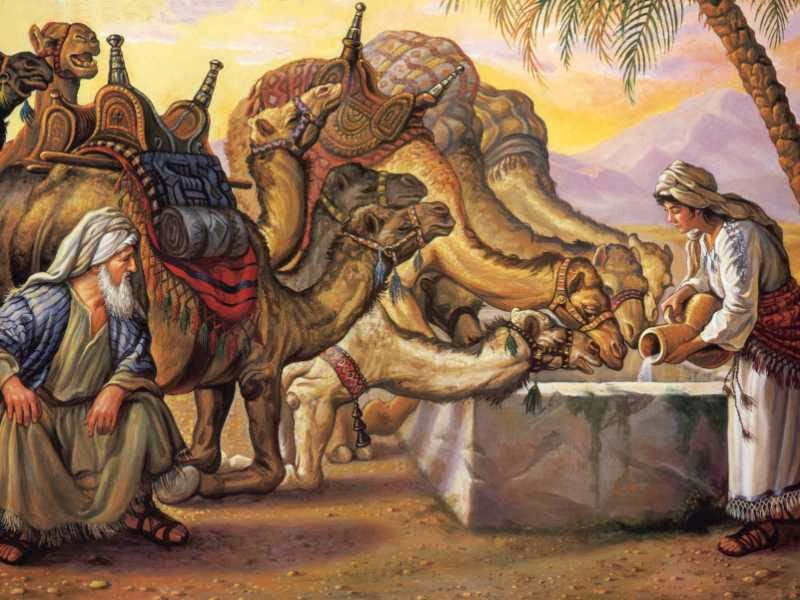
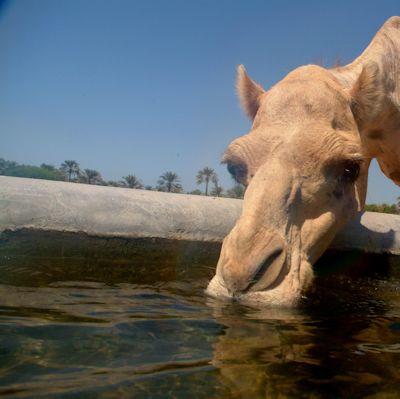
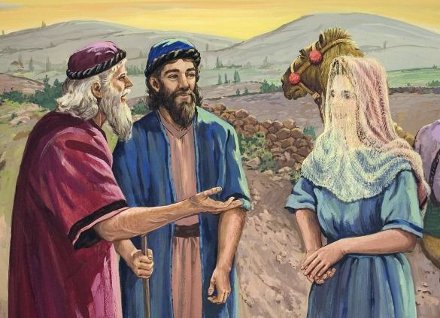
Note: you will need the oldheb.ttf (old Hebrew) and the SGreek Mediuim fonts to see the Hebrew and Greek text, as well as the three English fonts: Cooper Black, Impact and Frontlight MT Light. Right click the links and choose "Save Target As". Then go to the file, and either right click them and choose "install", or drag them into the font page.
oldheb.ttf
SGreek Medium
Cooper Black
Impact
Frontlight MT Light
Frontlight MT Light
NOTE: All of the yous and yours underlined as "you" and "your" indicates that the you and the your are plural. Also any of the words that are in bold pink lettering as "you" refers to the feminine gender, but it is only applied when it does not commonly refer to a woman. This only is applied to this week's Torah portion text at this time.
CHAPTER 23
Genesis 23:1-33
Gen 23:1 And the life of Sarah was a hundred years, and twenty years, and seven years: the years of the life of Sarah. 2 And Sarah, she died in Kirjath Arba; she is Hebron in the land of Canaan: and Abraham came to wail (breast beat) for Sarah, and to weep (mourn) for her. 3 And Abraham arose from upon the face of his dead, and spoke to the sons of Heth, to say, 4 I am a sojourner (stranger) and a dweller (alien dweller) with you: give to me a seizing (holding) of burial with you, and I may bury my dead from by my face. 5 And the sons of Heth, they answered ta-Abraham, to say to him, 6 Hear us, my lord: you are a ruler of Elohim in our midst: among the best of our burial places, bury ta-your dead; a man from us shall not withhold from you ta-his burial place from burying your dead. 7 And Abraham arose and bowed himself to the people of the land, to the sons of Heth.
8 And spoke with them, to say, If exist ta-your souls to bury ta-my dead from by my face; hear me and entreat (intercede) me on Ephron, son of Zohar, 9 and give to me ta-the cave of the Machpelah which belongs to him, which is in the edge (end) of his field; in fullness of silver shall give her to me in your midst for a seizing (holding) of burial. 10 And Ephron was dwelling in the midst of the sons of Heth: and Ephron, the Hittite, answered ta-Abraham in the ears of the sons of Heth to all entering the gate of his city, to say, 11 No, my lord, hear me: the field I have given to you, and the cave which is in him I have given her to you; to the eyes of the sons of my people I have given her to you: Bury your dead. 12 And Abraham bowed himself to the face of the people of the land.
13 And spoke to Ephron in the ears of the people of the land, to say, Surely (Howbeit), if you would hear a condition (to him?): Of the field, I will give silver; take from me, and I will bury ta-my dead there. 14 And Ephron answered ta-Abraham, to say to him, 15 My lord, hear me: the land is four hundred shekels of silver; what is that between me and between you? And bury ta-your dead. 16 And Abraham listened to Ephron; and Abraham weighed (scale weighed) to Ephron ta-the silver which was spoken in the ears of the sons of Heth, going over to the merchant of four hundred shekels of silver. 17 And the field of Ephron which was in the Machpelah, which was to the facing of Mamre, the field, and the cave which was in him, and all of the trees which were in the field, which were in all of his borders all around were established (arisen) 18 to Abraham for a purchase to the eyes of the sons of Heth among all entering the gate of his city.
19 And after thus, Abraham buried ta-Sarah, his woman (wife), to the cave of the field of the Machpelah upon the facing of Mamre: she is Hebron in the land of Canaan. 20 And the field, and the cave which is in him were established (arisen) to Abraham for a seizing (holding) of burial from ta the sons of Heth.
(NOTE: Not all verses will have comments)
Verse one
1 And the life of Sarah was a hundred years, and twenty years, and seven years: the years of the life of Sarah.
By the time of Sarah's death, she was 127 years old. That would put Abraham at 137 years old, Isaac at thirty seven years old and Ishmael at fifty-one years old.
This is a chart revealing the age of Abraham's ancestors from the previous chart in the Torah portion of Lekh L'kha, in the book of Genesis, by the time of Sarah's death when Abraham was 137 years old.
| YEAR OF MAN WHEN ABRAHAM WAS 137 YEARS OLD | NAME OF ABRAHAM'S ANCESTOR | AGE OF ABRAM'S ANCESTORS WHEN ABRAHAM WAS 137 YEARS OLD | AGE OF DEATH OF ABRAHAM'S ANCESTORS |
| 2085 YEARS OF MANKIND | Shem | 529 years old | 600 years old |
| 2085 YEARS OF MANKIND | Arphaxad | 427 years old | 438 years old |
| 2085 YEARS OF MANKIND | Salah | 392 years old | 433 years old |
| 2085 YEARS OF MANKIND | Eber | 362 years old | 464 tears old |
| 2085 YEARS OF MANKIND | Terah | Died two years prior at 205 years old when Abraham was 135 years old in the Year of Man 2083 | 205 years old |
Also, Isaac was thirty seven years old when his mother, Sarah, died.
If the calculation correct, this would take the time line to about 1915 BC.
By the time Abraham was 137 years old, a new king ruled in Egypt, and according to Wikipedia, based on the time line, his name was Nubkaure Amenemhat II who ruled from 1929-1895 BC. This is what Wikipedia says regarding this king:
"Nubkaure Amenemhat II was the third pharaoh of the 12th Dynasty of Ancient Egypt. Although he ruled for at least 35 years, his reign is rather obscure, as well as his family relationships.
Archaeological findings have provided the name of Amenemhat's mother, the "king's mother" Neferu III, but not the name of his father. Nevertheless, it is commonly assumed that he was a son of his predecessor Senusret I. An early attestation of Amenemhat may have come from the tomb of the namesake nomarch Amenemhat, buried at Beni Hasan This nomarch, who lived under Senusret I, escorted the "King's son Ameny" in an expedition to Nubia, and it is believed that this prince Ameny was no other than Amenemhat II in his youth".
These are images of statues Nubkaure Amenemhat II
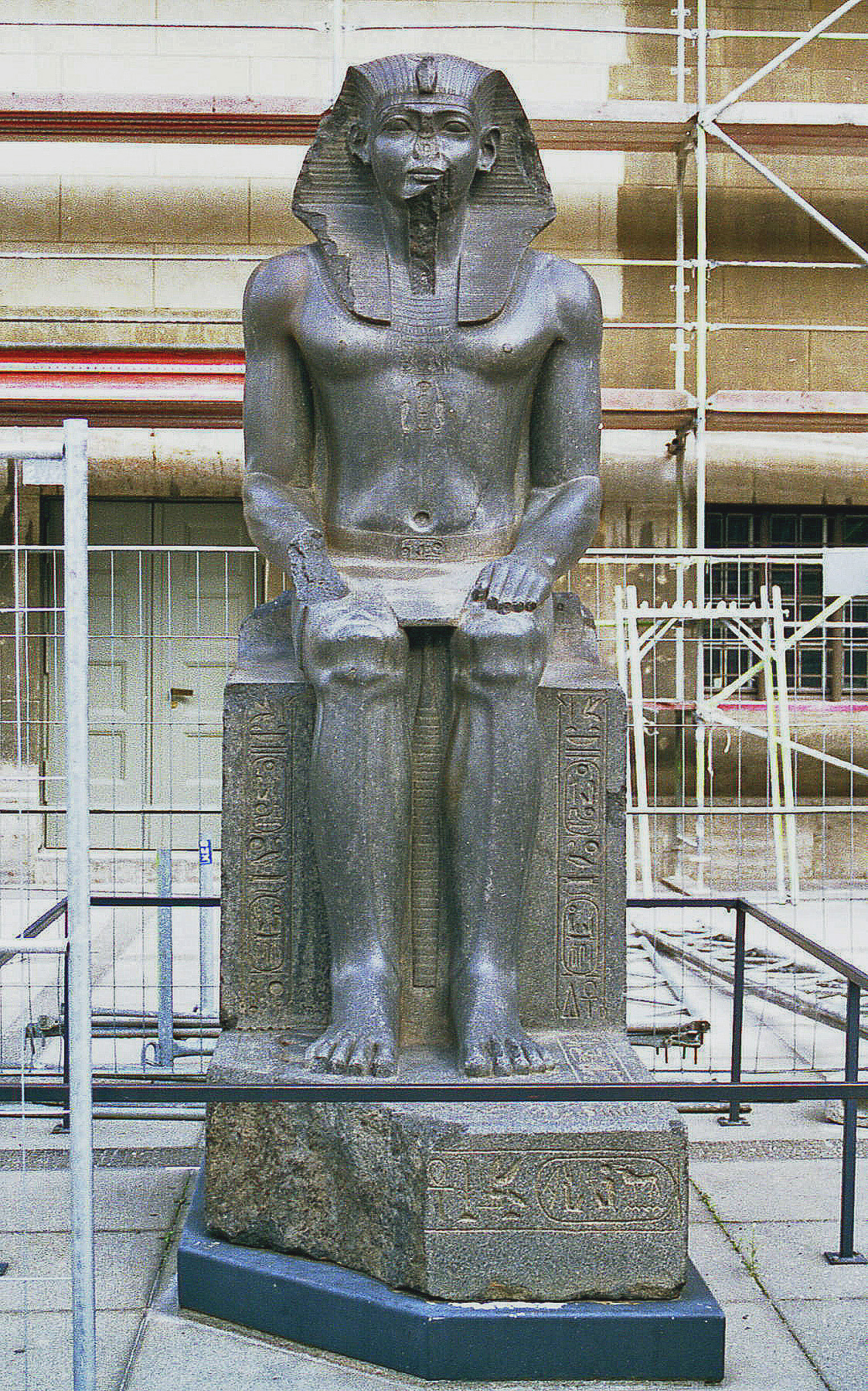
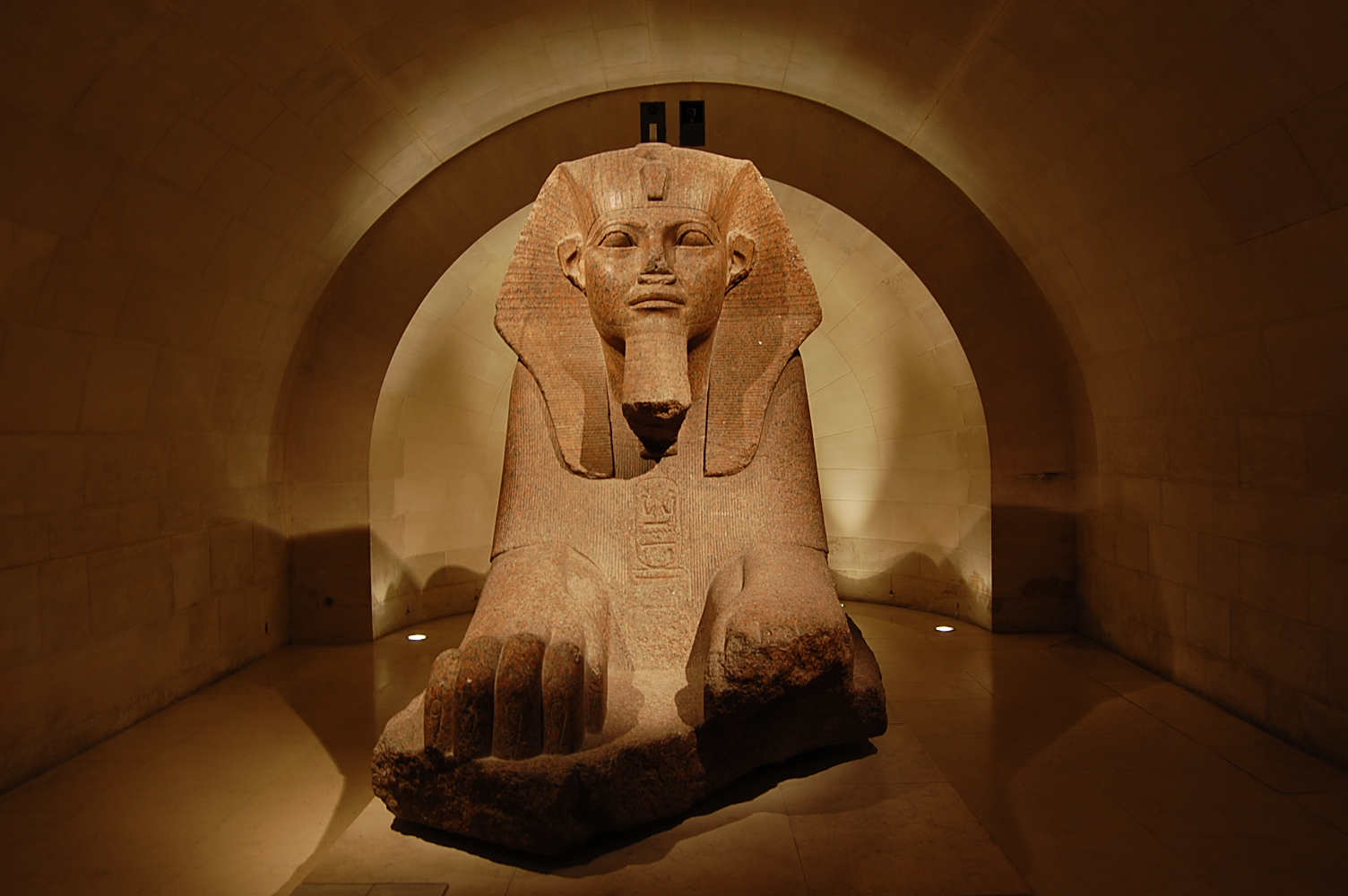
Verse two
2 And Sarah, she died in Kirjath Arba; she is Hebron in the land of Canaan: and Abraham came to wail (breast beat) for Sarah, and to weep (mourn) for her.
Looking at the word MOURN
The Hebrew word for mourn is "sah-phahd"- Samek, Peh, Dalet (dpo). It is from Strong's Concordance number 5594, and its definition
A primitive root; properly to tear the hair and beat the breasts (as Orientals do in grief); generally to lament; by implication to wail: - lament, mourn (-er), wail.
It is strongly possible that Abraham was pounding his chest in the loss of Sarah, his wife. Indirectly related, there is an account regarding someone pounding his chest, and it is in the Gospel of Luke
Luke 18:9 And He spake this parable unto certain which trusted in themselves that they were righteous, and despised others: 10 Two men went up into the Temple to pray; the one a Pharisee, and the other a Publican. 11 The Pharisee stood and prayed thus with himself, hwhy, I thank thee, that I am not as other men are, extortioners, unjust, adulterers, or even as this Publican. 12 I fast twice in the week, I give tithes of all that I possess. 13 And the Publican, standing afar off, would not lift up so much as his eyes unto the heavens, but smote upon his breast, saying, hwhy be merciful to me a sinner. 14 I tell you, this man went down to his house justified rather than the other: for every one that exalteth himself shall be abased; and he that humbleth himself shall be exalted.
This smiting upon one's breast, also can be chest, is an act of solemnity, whether for needing mercy or mourning.
Looking at the phrase "and to weep for her" in the Hebrew text, it is "v'leev-kothah" (htkblw). This issue about this Hebrew word is that in the Hebrew text, the Hebrew letter Kaph is smaller than the other letters
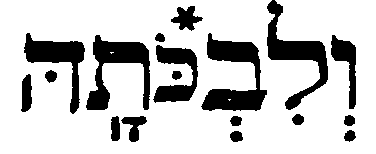
Monte Judah of Lion And Lamb Ministries made note of this in "The Jots and Titels of Moses" article in his July 2004 Yavoh magazine
"Kaf is the letter which means the open hand. Abraham's mourning for his wife is described as an open hand before God that can not be filled or satisfied. His petition to God for her return could not be fulfilled, therefore his hand remained open".
Verses three and four
3 And Abraham arose from upon the face of his dead, and spoke to the sons of Heth, to say, 4 I am a stranger (sojourner) and a dweller (alien dweller, resident) with you: give to me a possession (seize) of burial with you, and I may bury my dead from by my face.
Looking at the word DWELLER (ALIEN DWELLER, RESIDENT)
The Hebrew word for alien dweller (alien dweller, resident) is "toh-shahv"- Tet, Vav, Shin, Bet (bswt). It is from Strong's Concordance number 8453, and its definition
(The second form used in Kings Num_17:1); from H3427; a dweller (but not outlandish, H5237); especially (as distinguished from a native citizen (active participle of H3427) and a temporary inmate, H1616, or mere lodger, H3885) resident alien: - foreigner-inhabitant, sojourner, stranger.
from 3717 "yah-shahv" (bsy), and its definiton
A primitive root; properly to sit down (specifically as judge, in ambush, in quiet); by implication to dwell, to remain; causatively to settle, to marry: - (make to) abide (-ing), continue, (cause to, make to) dwell (-ing), ease self, endure, establish, X fail, habitation, haunt, (make to) inhabit (-ant), make to keep [house], lurking, X marry (-ing), (bring again to) place, remain, return, seat, set (-tle), (down-) sit (-down, still, -ting down, -ting [place] -uate), take, tarry.
This is the same word that desribed the prophet Elijah as "The Tishbite", which is noted in the book of the Kings
1 Kings 17:1 And said Elijah the Tishbite, from the inhabitants of Gilead,
In the Hebrew text, his name is "Eh-lee-yah-hoo Ha-teesh-bee" (ybsth whyla)
Looking at the word TISHBITE
The Hebrew word for Tishbite is "teesh-bee" (ybst) is from Strong's Concordance number 8664, and its definition
Patrial from an unused name meaning recourse; a Tishbite or inhabitant of Tishbeh (in Gilead): - Tishbite.
This is based on the Hebrew word "toshav" as noted above. Also looking at 1 Kings 7:1, the Hebrew word for inhabitants is the same Hebrew word "toshav" as noted above. It is possible that Elijah came not alone, but with a group of resident aliens in Gilead, similar to Abraham and his household being a resident alien in the land of Canaan.
Verses five through seven
5 And the sons of Heth, they answered ta-Abraham, to say to him, 6 Hear us, my lord (master): you are a ruler of Elohim in our midst: among the best of our burial places, bury ta-your dead; a man from us shall not withhold from you ta-his burial place from burying your dead. 7 And Abraham arose and bowed himself to the people of the land, to the sons of Heth.
Abraham set a great example to us to honor those who are owners of the land, as we should do to hwhy, the Creator of the Heavens and the Earth.
Verses eight and nine
8 And spoke with them, to say, If exist ta-your souls to bury ta-my dead from by my face; hear me and entreat (intercede) for me on Ephron, son of Zohar, 9 and give to me ta-the cave of the Machpelah which belongs to him, which is in the edge (end) of his field; in fullness of silver shall give her to me in your midst for a possession (seize) of burial.
This was to Abraham the best place to bury his wife. This would fulfill a future account that Yeshua was buried in the best tomb, which is noted in the Gospel of Matthew
Matthew 27:57 When the even was come, there came a rich man of Arimathaea, named Joseph, who also himself was Yeshua's disciple: 58 He went to Pilate, and begged the Body of Yeshua. Then Pilate commanded the Body to be delivered. 59 And when Joseph had taken the Body, he wrapped It in a clean linen cloth, 60 And laid It in his own new tomb, which he had hewn out in the rock: and he rolled a great stone to the door of the sepulchre, and departed.
Yeshua was buried in a choice, clean, unused, rich man's tomb, carved out from stone that was meant for Joseph of Arimathaea. If Yeshua was buried in a used one, He would have been disqualified to be the Messiah, because He would have been defiled among the dead near Him, which is noted in the Torah portion of Khukath, in the book of Numbers
Numbers 19:11 The one touching on the dead of any soul of an Adam, and shall be unclean seven days.
Yeshua could not raise from the dead while He was unclean, and He would have been raised from the dead in a defiled manner, disqualifying Him to be the Messiah. He would not have been able to ascend to the Kingdom of Heaven in a defiled state.
Looking at the word EPHRON
The Hebrew word for Ephron is "Eh-phrohn"- Ayin, Peh, Rosh, Vav, Nun Sophit (Nwrpe) is from Strong's Concordance number 6085, and its definition
From the same as H6081; fawn like; Ephron, the name of a Canaanite and of two places in Palestine: - Ephron, Ephrain [from the margin].
from 6081 "ah-phahr" (rpe), and its definition
Probably a variation of H6082; gazelle; Epher, the name of an Arabian and of two Israelites: - Epher.
from 6082 "oh-phehr" (rpe), and its definition
From H6080; a fawn (from the dusty color): - young roe [hart].
from 6080 "ah-phahr" (rpe), and its definition
A primitive root; meaning either to be gray or perhaps rather to pulverize; used only as denominative from H6083, to be dust: - cast [dust].
from 6083 "ah-phahr" (rpe), and its definition
From H6080; dust (as powdered or gray); hence clay, earth, mud: - ashes, dust, earth, ground, morter, powder, rubbish.
We can properly call Ephron's name, "Dusty".
Looking at the word MACHPELAH
The Hebrew word Machpelah is "Makh-pey-lah"- Mem, Kaph, Peh, Lamed, Heh (hlpkm). It is from Strong's Concordance number 4375, and its definition
From H3717; a fold; Makpelah, a place in Palestine: - Machpelah.
from 3717 "kah-phahl" (lpk), and its definiton
A primitive root; to fold together; figuratively to repeat: - double.
According to Mark Biltz of El Shaddai Ministries said that this cave was "a double cave". The question is, "If it was a dual cave, was it a dual open cave or was it a cave with dual caverns"? In my opinion, it could have been the latter.
In verse eight of this week's Torah portion passage, the phrase "shall be" in the Hebrew text is "yesh" (sy). One can say that Abraham was hinting "Yeshua" to them.
8 And spoke with them, to say, If Yeshua ta-your souls to bury ta-my dead from by my face; hear me and entreat (intercede) for me on Ephron, son of Zohar,
!!!hwhy Kl dbk
Looking at the phrase EXIST
The Hebrew word for exist is "yeysh"- Yod, Shin (sy). It is from Strong's Concordance number 3426, and its definition
Perhaps from an unused root meaning to stand out, or exist; entity; used adverbially or as a copula for the substantive verb (H1961); there is or are (or any other form of the verb to be, as may suit the connection): - (there) are, (he, it, shall, there, there may, there shall, there should) be, thou do, had, hast, (which) hath, (I, shalt, that) have, (he, it, there) is, substance, it (there) was, (there) were, ye will, thou wilt, wouldest.
The way of translating that part of the verse is that the Hebrew word "yesh" is an abbreviated form of "Yeshua". This is how it would be translated:
8 And spoke with them, to say, If Yeshua ta-your souls to bury ta-my dead from by my face; hear me and entreat (intercede) for me on Ephron, son of Zohar, 9 and give to me ta-the cave of the Machpelah which belongs to him, which is in the edge (end) of his field; in fullness of silver shall give her to me in your midst for a possession (seize) of burial.
!!!hwhy Kl dbk
Verses ten through twelve
10 And Ephron was dwelling in the midst of the sons of Heth: and Ephron, the Hittite, answered ta-Abraham in the ears of the sons of Heth to all entering the gate of his city, to say, 11 No, my lord (master), hear me: the field I have given to you, and the cave which is in him I will give her to you; to the eyes of the sons of my people I have given her to you: Bury your dead. 12 And Abraham bowed himself to the face of the people of the land.
If I was Abraham, I would say "Wow! What a deal"!
It shows in verse twenty a second time Abraham bowed down to them. The first time is in verse seven
7 And Abraham arose and bowed himself to the people of the land, to the sons of Heth.
Jacob bore Abraham's genes and bowed seven times to Esau after he returned to Canaan from Mesopotamia, which is noted in the Torah portion of Vay-Yishlakh, in the book of Genesis
Genesis 33:1 And Jacob lifted his eyes, and looked, and behold, Esau was coming, and with him were four hundred men. And he divided (split) ta-the lads (boys, children) upon Leah, and upon Rachel, and upon the two female servants, 2 and put ta-the female servants and ta-their lads (boys, children) first, and ta-Leah and her lads (boys, children) were behind them, and ta-Rachel and ta-Joseph were behind them. 3 And he went over to their faces, and bowed himself to the Earth seven times, until he approached unto his brother.
Looking at the word HITTITE
The Hebrew word for Hittite is "Khee-tee"- Khet, Tav, Yod (ytx). It is from Strong's Concordance number 2850, and its definition
Patronymic from H2845; a Chittite, or descendant of Cheth: - Hittite, Hittites.
from 2845 "kheyth" (tx), and its definition
From H2865; terror; Cheth, an aboriginal Canaanite: - Heth.
from 2865 "khah-thath" (ttx), and its definition
A primitive root; properly to prostrate; hence to break down, either (literally) by violence, or (figuratively) by confusion and fear: - abolish, affright, be (make) afraid, amaze, beat down, discourage, (cause to) dismay, go down, scare, terrify.
I will note about this later in the chapter.
Verse thirteen
13 And spoke to Ephron in the ears of the people of the land, to say, Surely (Howbeit), if you would hear a condition: Of the field, I will give silver; take from me, and I will bury ta-my dead there.
After an offer that one could not rightly refuse, why did Abraham respond to offer silver for the land? Unless in theory he knew that if in a future generation that he didn't buy it, others can claim that he didn't have the right to be buried there. I don't know for sure.
Notice that that alternate interpretation is "Nevertheless, 'to him'....
Looking at the phrase IF (TO HIM)
The Hebrew phrase for if (to him) is "lo"- Lamed, Vav (wl). It is from Strong's Concordance number 2850, and its definition
A conditional particle; if; by implication (interjectionally as a wish) would that!: - if (haply), peradventure, I pray thee, though, I would, would God (that).
Though, it doesn't say it, but it could also be translated as the Hebrew phrase "to him". One can say that when Abraham said "to him" it meant to "Him", meaning "Yeshua". This tells us that Abraham was involving Yeshua speaking to Ephron to pay for the cave of the Machpelah.
!!!hwhy Kl dbk
Verses fourteen and fifteen
14 And Ephron answered ta-Abraham, to say to him, 15 My lord (master), hear me: the land is four hundred shekels of silver; what is that between me and between you? And bury ta-your dead.
Monte Judah of Lion and Lamb Ministries made note that this negotiation was in a "passive" language of word between Abraham and "Dusty", the Hittite. Monte also says that it was not a direct frontal attack, but more in a thirdish person perspective. In other words, they were beside themselves in this exchange.
Notice that three times it was said to Abraham to go bury his dead in verses six, eleven and fifteen:
6 ...bury ta-your dead...
11 ...bury your dead....
15 ...Bury ta-your dead.
The first time was a generality, the second time occurred when Ephron, son of Zohar offered Abraham's request for the cave of Machpelah without cost and the third time was after he named a price and sold it to Abraham.
Abraham bowed to the earth after he was told to bury his dead, but did not bow after the third time. Why not? Was it that he did not get a good deal for the cave from "Dusty", son of Zohar? If I were to surmise Abraham's view, he probably was not happy with the amount, and maybe he did not bow to him that time, to show he was not pleased with Ephron's value.
Verses sixteen through eighteen
16 And Abraham listened to Ephron; and Abraham weighed (scale weighed) to Ephron ta-the silver which was spoken in the ears of the sons of Heth, going over to the merchant of four hundred shekels of silver. 17 And the field of Ephron which was in the Machpelah, which was to the facing of Mamre, the field, and the cave which was in him, and all of the trees which were in the field, which were in all of his borders all around were established (arisen) 18 to Abraham for a purchase to the eyes of the sons of Heth among all entering the gate of his city.
This means that the amount "Dusty", the Hittite, charged Abraham was more than the actual value of a merchants estimate of the property. Based on this verse, we can see that the merchants controlled the value of the property, and is most probable they also controlled the weights and measures, the value of the gold, silver and copper shekels and the international monetary system. Later in the Torah, we will see that the Levitical Priests would take up that charge for the Israelites to value the weight of the shekel and valuate the property and animals.
In my opinion, "Dusty", the Hittite, deceived Abraham and made a profit from his sale of the property to Abraham. One can do it in an evil matter and give false weights, measures and values which is noted in the Torah portion of Ki Theytsey, in the book of Deuteronomy, and also is noted in the book of Proverbs
Deuteronomy 25:13 Shall not have for yourself a stone and the stone, a great and a small, in your cuppish bag.
Proverbs 16:11 A just weight and balance are hwhy's: all the weights of the bag are his work.
Proverbs 20:10 Divers weights, and divers measures, both of them are alike abomination to hwhy.
Proverbs 20:23 Divers weights are an abomination unto hwhy; and a false balance is not good.
Laban used false weights and measure by changing Jacob's wages ten times, but they were not for the good, because he was greedy, which is noted in the Torah portion of Vay-Yeytsey, in the book of Genesis
Genesis 31:7 and your father has deceived (cheated, derided) against me, and changed ta-my wages ten weighings; and Elohim has not given (allowed) him to the evil with me.
Genesis 31:41 This was (has been) to me twenty years in your house; serving you four ten (fourteen) years on your two daughters, and six years on your flocks: and you have changed ta-my wages ten weighings.
Laban also saw that he was getting blessed by Jacob, but was suppressing Jacob from benefiting the rewards. It is noted in the Torah portion of Vay-Yeytsey, in the book of Genesis
Genesis 30:31 And said, What shall I give to you? And Jacob said, You shall not give to me anything: If you will do for me this word; I will return, I will tend, and I will keep (guard) your flock: 32 I will go over among all of your flock the day (today) of the removing from there every spotted and variegated lamb, and every brown (black) lamb among the sheep, and variegated and spotted among the kids: and these shall be my wages. 33 And shall eye her on me my righteousness in the day to come [(in the latter day)] when you come upon my wages to your face of all that are not spotted and variegated among the kids, and brown (black) among the sheep, he shall be stolen with me. 34 And Laban said, Behold, that (to him) shall be according to your word, 35 and removed in that day ta-the kids: the ring streaked (bands, striped) and the variegated, and ta all of the kids: the spotted and the variegated, and of all which were white on him, and all of the brown (black) among the sheep, and gave into the hand of his sons, 36 and set a journey of three days between himself and between Jacob: and Jacob was tending ta-the remainder of the flocks of Laban.
Laban even deceived Jacob on good offers and took away what rightly belonged to Jacob.
Going back to Abraham's bows to the men of Heth, was the reason Abraham did not bow the third time because he did not get a good deal for the cave from Ephron, son of Zohar? Looking into Abraham's view, he probably was not happy with the amount, and maybe he did not bow to him that time, to show he was not pleased with Ephron's value. BUT, he purchased the field, the trees, on top of the cave.
I have a theory to why Abraham insisted that he buy the cave, and it is based in what Abram said, which is noted in the Torah portion of Lekh L'kha, in the book of Genesis
Genesis 14:21 And the king of Sodom said to Abram, Give the souls to me, and take the goods (substances, property) for yourself. 22 And Abram said to the king of Sodom, I have raised my hand to hwhy El Elyon, Possessor (Erector) of the Heavens and the Earth, 23 but from a cord (line) and unto a lace (lachet) of a sandal, and but will I take from anything which belongs to you, and you shall not say, I, I have made ta-Abram rich:
Abraham could have most likely remembered this statement he made to the king of Sodom, and applied it in his account with "Dirt Bag", the Hittite, in order to make sure that "Dirt Bag" wouldn't make the claim that he prospered Abraham with his land. That is my theory to why Abraham bought it.
!!!hwhy Kl dbk
Mark Biltz of El Shaddai Ministries noted what hwhy said to him, which is noted in the Torah portion of Lekh L'kha, in the book of Genesis
Genesis 13:14 And hwhy said to Abram after that Lot separated (split) from upon him, Lift up (bear) your eyes now and look from the place which you are there; hiddenward (northward), and negebward (southward), and eastward, and seaward (westward): 15 for ta-all the land which you see to yourself will I give her to your seed unto ages [(forever)].
Mark stated that hwhy said He will "give" the land to him, and Mark asked to why Abraham "purchased" this portion of land, if it was to be given to him in the first place? Mark also made note that Jacob later purchased a portion of a field in the land of Shechem. It is noted in the Torah portion of Vay-Yishlakh, in the book of Genesis
Genesis 33:18 And Jacob came of Shalem, a city of Shechem, which is in the land of Canaan in his coming from Padan Aram; and camped at ta-the face of the city. 19 And purchased (bought) ta-a portion of the field where his tent was stretched out there from the hand of the sons of Hamor, father of Shechem, on a hundred ingots.
Another source shows after the Israelites possessed the land, King David purchased the threshold in two different sources. It is noted in the books of the prophet Samuel and the Chronicles
2 Samuel 24:24 And the king said unto Araunah, Nay; but I will surely buy it of thee at a price: neither will I elevate Elevation Offerings unto hwhy, my Elohim, of that which doth cost me nothing. So David bought ta-the threshing floor and ta-the oxen for fifty shekels of silver.
1 Chronicles 21:23 And Ornan said unto David, Take it to thee, and let my lord the king do that which is good in his eyes: lo, I give thee the oxen also for Elevation Offerings, and the threshing instruments for wood, and the wheat for the Food (Grain) offering; I give it all. 24 And king David said to Ornan, Nay; but I will verily buy it for the full price: for I will not take that which is thine for hwhy, nor elevate Elevation Offerings without cost. 25 So David gave to Ornan for the place six hundred shekels of gold by weight.
The Prophet Jeremiah purchased a family field after the Babylonians captured Jerusalem, which is noted in his book
Jeremiah 32:7 Behold, Hanameel, the son of Shallum, thine uncle, shall come unto thee, saying, Buy thee ta-my field that is in Anathoth: for the right of redemption is thine to buy it. 8 So Hanameel mine uncle's son came to me in the court of the prison according to the Word of hwhy, and said unto me, Buy ta-my field, I pray thee, that is in Anathoth, which is in the country of Benjamin: for the right of inheritance is thine, and the redemption is thine; buy it for thyself. Then I knew that this was the Word of hwhy. 9 And I bought ta-the field from ta Hanameel, my uncle's son, that was in Anathoth, and weighed him ta-the silver, even seventeen shekels of silver. 10 And I subscribed the evidence, and sealed it, and took witnesses, and weighed him the money in the balances. 11 So I took ta-the evidence of ta-the purchase, both ta-that which was sealed according to the Commandment and Statute, and that which was open: 12 And I gave ta-the evidence of the purchase unto Baruch, the son of Neriah, the son of Maaseiah, in the sight of Hanameel, mine uncle's son, and in the presence of the witnesses that subscribed the book of the purchase, before all the Jews that sat in the court of the prison.
To me, the point of Abraham's purchase is to have no dispute from other nations and peoples that the land belongs to him and his descendants, and not to anyone else. This first purchase of the land of Canaan was a perfect situation and excuse to purchase land so that Sarah's body will be buried in the land of Canaan. Sarah's burial in the land was "the anchor" in the possession process of the land of Canaan that hwhy "gave" to Abraham and Sarah and their descendants.
Verses nineteen and twenty
19 And after thus, Abraham buried ta-Sarah, his woman (wife), to the cave of the field of the Machpelah upon the facing of Mamre: she is Hebron in the land of Canaan. 20 And the field, and the cave that is in him were established (arisen) to Abraham for a possession (seize) of burial from ta the sons of Heth.
If anyone would think for a minute on this verse, one question they should ask themselves, "Where was Isaac to at least help his father, Abraham, and bury his mother with him out of respect for his mother?". Why wasn't Isaac mentioned at all to help bury his mother? I'm guessing that he must have had some real resentment toward his father for what was done to him at Mount Moriah. Isaac's anger toward his father was more heavy than his mourning for the loss of his mother, and he would not go near him. That is why Abraham buried Sarah himself.
Of all the patriarchs and matriarchs that are buried at Hebron, Sarah was the first one to die. Normally, the husband dies first, then the wife. When we see hwhy in the future, I would like to ask Him why He allowed Sarah to die first instead of Abraham.
The Ark of Discovery website has an article regarding Ron Wyatt's claims that he has found the Cave of Machpelah. Below are sketch images what Ron Wyatt says is the true cave of Machpelah
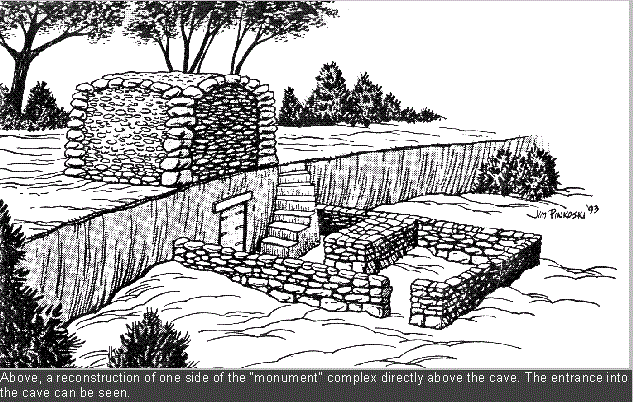
This is the outside structure above the cave
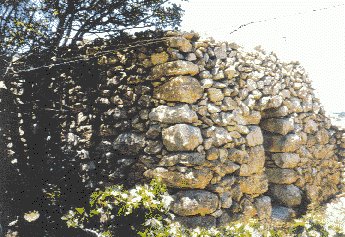
The cave's entrance
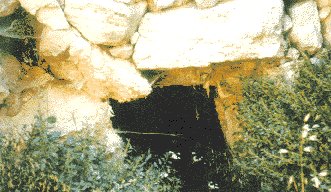
Inside the cave showing the three double crypts and the niche
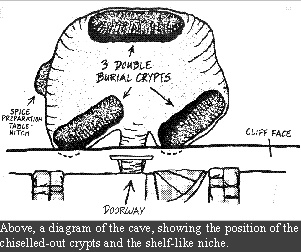
A sketch of the niche inside the cave
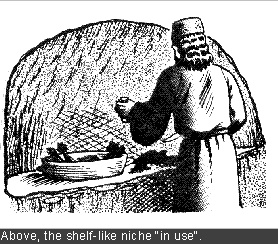
You can find the artlices of Ron Wyatt's search for the Cave of Machpelah at these links
- - - - - - - - - - - - - - - - - - - - - - - - - - - - - - - - - - - - - - - - - - - - - - - - - - - - - - - - - - - - - - - - - - - - - - - - - - - - - - - - - - - -
DISCLAIMER
The views and opinions expressed, from the information below, are solely those of the personnel and do not necessarily reflect the views or opinions of The Aleph-Tav Project.
- - - - - - - - - - - - - - - - - - - - - - - - - - - - - - - - - - - - - - - - - - - - - - - - - - - - - - - - - - - - - - - - - - - - - - - - - - - - - - - - - - - -
http://www.arkdiscovery.com/machpelah.htm
http://wyattnewsletters.com/machpelah/mcplaintro.htm
http://wyattmuseum.com/the-cave-of-machpelah/2011-547
Mark Biltz of El Shaddai Ministries brought this matter about Ephron's name. In the first four times, his name is mentioned in verses eight, ten, thirteen and fourteen, and the first time in verse sixteen his name is spelled with a Vav (Nwrpe). The second time in verse sixteen, however, his name is missing the letter Vav (Nrpe). Compare the four times Ephron's name is mention in the Hebrew:
8 And spoke with them, to say, If exist ta-your souls to bury ta-my dead from by my face; hear me and entreat (intercede) for me on Ephron (Nwrpe), son of Zohar,
10 And Ephron was dwelling in the midst of the sons of Heth: and Ephron (Nwrpe), the Hittite, answered ta-Abraham in the ears of the sons of Heth to all entering the gate of his city, to say,
13 And spoke to Ephron (Nwrpe) in the ears of the people of the land, to say, Surely (Howbeit), if you would hear a condition: Of the field, I will give silver; take from me, and I will bury ta-my dead there.
14 And Ephron (Nwrpe) answered ta-Abraham, to say to him,
16 And Abraham listened to Ephron (Nwrpe); and Abraham weighed (scale weighed) to Ephron (Nrpe) ta-the silver which was spoken in the ears of the sons of Heth, going over to the merchant of four hundred shekels of silver.
This is when Abraham is giving the silver to Ephron. Mark said that his name, "Dusty", was diminished when he received the silver, because Ephron in his greed stated a price above the value of the property in which he was taking advantage of Abraham.
In many words, Mark said that the Vav was removed from Ephron's (Dusty's) name as a diminishing, or demotion, of himself, and became dirt, a.k.a., in Mark's words, "Dirt Bag".
In my input of this, the Vav in Ephron's name is the Hebrew picture for a nail. Part of his name means dust that is nailed. As hwhy said in part of the the phrase in Genesis chapter three "dust you came" (Genesis 3:19). Ephron's with the Vav in his name was spiritually a means to say his spirit and his "dirt" was held together. When the Vav was removed from his name, when he received the silver from Abraham, Ephron lost the nail that held his spiritual dust together, and now he became, spiritually, floating dust, or one can say, his dust was in khaos.
In the end, one could say, "The Dirt Bag filled his "money bag"".
Looking at the word ZOHAR
The Hebrew word for Zohar is "Tsoh-khahr"- Tsade, Khet, Resh (rxu) is from Strong's Concordance number 6714, and its definition
From the same as H6713; whiteness; Tsochar, the name of a Hittite and of an Israelite: - Zohar. Compare H3328.
from 6713 "tsah-khahr" (rxu), and its definition
From an unused root meaning to dazzle; sheen, that is, whiteness: - white.
Putting the definitions of the names together, it states a phrase:
"Dazzling dust"
We might as well call Ephron "A dazzling dirtbag".
Also, adding a definition of Heth to the phrase it says this:
"A dazzling dust broken down"
Also, Abraham was the only one that buried Sarah. He did not have anyone else to help him. Why? I don't know. Probably it was the culture of the day for the husband to bury his wife.
Notice who is not mentioned throughout this chapter in these events--------> Isaac! Where is he? He was living with his mother after what happened at Mount Moriah, based in the previous chapter. By this time when Abraham came to mourn for Sarah, there is no doubt that Isaac did not want anything to do with his father. He didn't want to see him nor speak to him. That is why Isaac was not mentioned in this chapter. I would like to see someone dramatize this situation correctly in a movie.
CHAPTER 24
Genesis 24:1-67
Gen 24:1 And Abraham was old, going in the days: and hwhy had blessed ta-Abraham in allness. 2 And Abraham said to his servant, the elder of his house, that ruled in all which belonged to him, Put now your hand under my testicles: 3 And I will have you swear in hwhy, Elohim of the Heavens and Elohim of the Earth which you will not take a woman (wife) to my son from the daughters of the Canaanites which I dwell in his nearness: 4 For you will go to my land, and to my birthing (kindred), and you will take a woman (wife) for my son, for Isaac. 5 And the servant said to him, Perhaps the woman, she will not be willing to go after me to this land: returning [(that returning?)], I shall return ta-your son to the land which you came out from there? 6 And Abraham said to him, Guard (Watch, Observe, Take heed) for yourself lest you return ta-my son there. 7 hwhy, Elohim of the Heavens, which took me from the house of my father, and from the land of my birth (kindred), and the which spoke to me, and the which swore to me, to say, I will give ta-this land to your seed; He shall send His Messenger to your face, and you shall take a woman (wife) for my son from there. 8 And the woman, if she shall not be willing to go after you, and you shall be innocent (clear, guiltless) from this my oath: only do you not return ta-my son there. 9 And the servant put ta-his hand under the testacles of Abraham, his lord, and swore to him upon this word.
10 And the servant took ten camels from the camels of his lord, and left; and all of the goods of his lord) were in his hand: and arose, and went to Aram Naharaim, to the city of Nahor. 11 And the camels knelt down from outside by the city to a bore-well of the water, by the time of the mixing period (evening), by the time of the going out of the drawing. 12 And said, hwhy, Elohim of my lord (master), Abraham, befall (happen) now to my face today (the day), and do kindness with my lord (master), Abraham. 13 Behold, I am standing upon the eye-well of the water; and the daughters of the men of the city are coming out to draw water: 14 And shall be the young woman of which I shall say to her, Let down (extend) now your pitcher, and I may imbibe (drink) her; and say of her, Imbibe (Drink), and also I will make quaff (make drink) your camels: her, you have designed (convinced, decided, purposed, functioned?) for your servant, for Isaac; and in her shall I know for you have done kindness with my lord (master).
15 And was, before finishing to speak, and behold, Rebekah came out, which was birthed to Bethuel, son of Milcah, woman (wife) of Nahor, brother of Abraham, and her pitcher was upon her shoulder. 16 And the young woman was much good of form (appearance), a virgin, and a man had not known her: and she descended (went down) to the eye-well, and she filled her pitcher, and she ascended. 17 And the servant ran to meet (encounter) her, and said, I shall swallow (drink) now a little water from your pitcher. 18 And she said, Imbibe (Drink), my lord (master): and she hurried (hastened), and she descended (let down) her pitcher upon her hand, and she had him quaff (drink). 19 And she finished to have him quaff (drink), and she said, I will draw for your camels also until if they have finished to imbibe (drink). 20 And she hurried (hastened), and she emptied her pitcher to the trough, and she ran still to the bore-well to draw, and she drew for all of his camels. 21 And the man was with wonder (astonishment) to her with scratching (silence, engraving) to know that hwhy had prospered his journey, if not.
22 And was, as the which the camels, they had finished to imbibe (drink), and the man took a golden nose ring (earring) of a half shekel (broken shekel) of his weight (scale), and two bracelets (arm clasps) upon her hands, of ten gold of their weight (scale); 23 And said, The daughter of who are you? Tell (Declare) to me now: that exists the house of your father a place for us to lodge (stay)? 24 And she said to him, I am the daughter of Bethuel, son of Milcah, which was birthed to Nahor. 25 And she said to him, Also straw also fodder are plentiful (multiple) with us, also a place to lodge (stay). 26 And the man bowed, and worshipped to hwhy. 27 And said, Blessed be hwhy, Elohim of my lord (master), Abraham, which has not forsaken His Kindness and His Truth from with my lord (master): I being in the way, hwhy led (guided) me at the house of the brother of my lord (master). 28 And the young woman, she ran, and she told (declared) to the house of her mother according to these words [(as these words)].
29 And to Rebekah was a brother, and his name was Laban: and Laban ran to the man to the outside to the eye-well. 30 And was, as seeing ta-the nose ring (ear ring) and ta-the bracelets (hand clasps) upon the hands of his sister, and as he heard ta-the words of Rebekah, his sister, to say, Thus spoke the man to me; And came to the man; and behold, was standing upon the camels upon the eye-well. 31 And said, Come, blessed of hwhy!; To why are you standing on the outside? And I, I have made face (prepared) the house and a place for the camels!
32 And the man came to the house: and unloaded (ungirded, loosened, opened wide?) the camels, and gave straw and fodder for the camels, and water to wash his feet and the feet of the men which were with him. 33 And was set to his face to eat: and said, I will not eat until if (but) I have spoken my word. And said, Speak. 34 And said, I am the servant of Abraham. 35 And hwhy has blessed ta-my lord (master) much; and became great: and was given to him flocks, and herds, and silver, and gold, and male servants, and female servants, and camels, and the donkeys. 36 And Sarah, the wife of my lord (master), she birthed a son to my lord (master) after her old age: and was given to him ta-all which belongs to him. 37 And my lord (master) made me swear, to say, You shall not take a woman (wife) for my son from the daughters of the Canaanites which I dwell in his land: 38 If not ([(?But not?)], you shall go to the house of my father, and to my family, and you shall take a woman (wife) for my son. 39 And I said to my lord (master), Perhaps (if not, ?not of me?) the woman, she will not go after me. 40 And said to me, hwhy, which I walk to His Face, will send His Messenger with you and shall prosper your way; And you shall take a woman (wife) for my son from my family and from the house of my father: 41 Then when you come to my family, you shall be blameless (innocent, guiltless) from my alah-oath; and if they shall not give to you, and you shall be free (innocent, guiltless, blameless) from my alah-oath.
42 And I came today (the day) to the eye-well, and said, hwhy, Elohim of my lord (master), Abraham, if you exist now, prosper my way which I shall go upon her: 43 Behold, I was standing upon the eye-well of the water; and was, the virgin that was coming forth to draw, and I said to her that I shall quaff (drink) now a little water from your pitcher; 44 And said of her to me, Also you shall imbibe (drink), and I will draw also for your camels: she is the woman which hwhy has chosen (decided) for the son of my lord (master).
45 I, before I had finished to speak to my heart, and behold, Rebekah was coming out, and her pitcher was upon her shoulder; and she descended (went down) to the eye-well, and she drew: and said to her that I will quaff (drink), now. 46 And she hurried (hastened), and she descended (let down) her pitcher from upon her, and she said, Imbibe (Drink), and also your camels I will make quaff (drink): and I imbibed (drank), and also the camels that made quaff (drink) of her.
47 And I asked her, and said, Who of the daughter are you? And she said, The daughter of Bethuel, son of Nahor, which Milcah birthed to him: and I put the nose ring (ear ring) upon her nose (nostrils), and the bracelets (arm clasp) upon her hands. 48 And I bowed, and I worshiped to hwhy, and I blessed ta-hwhy, Elohim of my lord (master), Abraham, which led (guided) me in the true way, to take ta-the daughter of my brother of my lord (master) for his son. 49 And now, if you exist doing kindness and truth at ta-my lord (master), tell (declare) to me: and if not, tell (declare) to me; and I may face upon the right, or upon the small (left).
50 And Laban and Bethuel answered, and they said, From hwhy has gone out the word: we are not able at speaking to you evil or good. 51 Behold, Rebekah is to your face, take her, and go, and she shall be the woman (wife) of the son of your lord (master) as the which hwhy has spoken. 52 And was, that as the which the servant of Abraham had heard ta-their words, and bowed to hwhy to the Earth. 53 And the servant brought out vessels of silver, and vessels of gold, and garments, and gave to Rebekah: and gems (precious items) were given to her brother and to her mother. 54 And they ate and they imbibed (drank), he and the men which were with him, and they lodged (stayed);
And they arose in the breaking period (morning), and said, Send me away to my lord (master). 55 And her brother and her mother said, The young woman, she will dwell with us days, or ten; Afterwards, she may go. 56 And said to them, Do you not delay me, and hwhy has prospered my way; send me away, and I will go to my lord (master). 57 And they said, We will call to the young woman, and we will inquire her ta-her mouth. 58 And they called to Rebekah, and they said to her, Will you go with this man? And she said, I will go. 59 And they sent away ta-Rebekah, their sister, and ta-her nurse (suckle nurse), and ta-the servant of Abraham, and ta-his men. 60 And they blessed ta-Rebekah, and they said to her, Our sister, you will be of thousands of myriads, and your seed shall possess (occupy) ta the gate of their haters. 61 And Rebekah, she arose, and her young women, and they rode upon the camels, and they went after the man: And the servant took ta-Rebekah, and left.
62 And Isaac came, from coming at Beer Lahai Roi; and he was dwelling in the land of the Negev. 63 And Isaac had gone out to meditate in the field to the facing of the mixing period (evening): and lifted up his eyes, and looked, and behold, camels were coming. 64 And Rebekah, she lifted up ta-her eyes, and she saw ta-Isaac, and she got off (lightened off) from upon the camel. 65 And she said to the servant, Who is this man that is [(the one)] walking in the field to meet (encounter) us? And the servant said, He is my lord (master): And she took the veil, and she was concealed (covered). 66 And the servant recounted (scrolled, accounted) to Isaac ta all of the words which were done. 67 And Isaac brought her to the tent of Sarah, his mother, and took ta-Rebekah, and she became to him for a woman (wife); and loved her: And Isaac was comforted after his mother.
(NOTE: Not all verses will have comments)
Verses one and two
1 And Abraham was old, going in the days: and hwhy had blessed ta-Abraham in allness. 2 And Abraham said to his servant, the elder of his house, that ruled all which belonged to him, Put now your hand under my testicles:
This is an unusual request by Abraham to ask his servant to put his hand under his testacles, but the King James Version translates "thigh", but he was emphasizing his servant to place his hand under his testicles.
Looking at the word TESTACLES
The Hebrew word for testacles is "yah-reyk"- Yod, Resh, Kaph Sophit (Kry). It is from Strong's Concordance number 3409, and its definition
From an unused root meaning to be soft; the thigh (from its fleshy softness); by euphemism the generative parts; figuratively a shank, flank, side: - X body, loins, shaft, side, thigh.
This is where we get our modern English "rack". That is "the testicles". Abraham was directing his servant to place his hand under his "testicles".
If ones thinks of it, the word "testicles" is based on the word "testimony". This was a swearing of testimony between Abraham and his elder servant, whom is commonly known to be Eliezer, because he was the supposed heir to "Abram" before the name change, which is noted in the Torah portion of Lekh L'kha, in the book of Genesis
Genesis 15:2 And Abram said, Adonai hwhy, what will you give to me? And I am going childless, and a son of a steward [(a son of Meshec)] is of my house, he is Eliezer of Damascus.
There was no doubt that Eliezer became Abraham's elder servant as years went by. Eliezer could have been roughly twenty years old at minimum when Abram was 85 years old. This was like Joseph being the elder servant to Potiphar, which is noted in the Torah portion of Vay-Yeyshev, in the Torah book of Genesis
Genesis 39:1 And Joseph was brought down to Egypt; and Potiphar, an officer of Pharaoh, Chief of the Executioners, an Egyptian man, bought him from the hand of the Ishmaelim who had brought him down there. 2 And hwhy was of (with) ta-Joseph, and was a prosperous man; and was in the house of his lord (master), the Egyptian. 3 And his lord (master) saw that hwhy was with him, and of all that He did, hwhy was prospering in his hand. 4 And Joseph found favor (grace) in his eyes, and served him: and made him overseer upon his house, and of all existed to him was given in his hand.
The reason that Abraham made Eliezer put his hand under his testacles, because that was where Abraham's source of his seed comes from, meaning that this is not just for him, but for his "seed" after him.
Indirectly related to Abraham's account, in the future, Joshua brought the Israelites to cross over the Jordan River into the promised land, and the first place they went to destroy was the city of Jericho. It is noted in the book of Joshua
Joshua 6:1 Now Jericho was straitly shut up because of the Sons of Israel: none went out, and none came in. 2 And hwhy said unto Joshua, See, I have given into thine hand Jericho, and ta-the king thereof, and the mighty men of valour.... 26 And Joshua adjured them at that time, saying, Cursed be the man before hwhy, that riseth up and buildeth ta-this city ta-Jericho: he shall lay the foundation thereof in his firstborn, and in his youngest son shall he set up the gates of it.
The Hebrew word for Jericho is "Y'ree-khoh" (wxyry), from Strong's number 3405 meaning "moon". Though the Hebrew letters aren't the same, they are the same in sound, and Jericho could also be a play on the word "yah-reyk" (Kry). Jericho could also be an alternate meaning for "testacles". If this is true, we can say that hwhy was telling Joshua to have the Israelites destroy the symbolic "testacles" of the Canaanites, because that would be the place where they produce the symbolic "seed" of the nation. When Jericho is destroyed, it destroyed Canaan's symbolic seed, their symbolic "reproductive system", so that they couldn't reproduce . This would be why Joshua told the Israelites that those who would try to rebuild Jericho (the symbolic "testicles" of Canaan) would be cursed for it, because it would be an act to restore Canaan's symbolic reproductive system.
Knowing that Isaac was forty years old, as will be shown later, Abraham is 140 years old, taking Eliezer to at minimum 75 years old.
This is not the only time this kind of oath swearing was done, Jacob and Joseph did the same oath process, which is noted in the Torah portion of Va-Y'khi, in the book of Genesis
Genesis 47:29 And the days of Israel to the death, they were drawing near: and called his son Joseph, and said to him, If I have now found favor (grace) in your eyes, put now your hand under my testacles, and you will do mercy and truth with me; Now, do you not bury me in Egypt: 30 And I will lay with my fathers, and I will be carried (lifted up, beared up) from Egypt, and I will be buried in their burying place. And said, I, I will do according to your word. 31 And said, Swear to me. And swore to him. And Israel, he bowed upon the head of the bed.
Jacob-Israel did the same thing Abraham did to Eliezer, but unto Joseph, his son.
Verses three and four
3 And I will have you swear in hwhy, Elohim of the Heavens and Elohim of the Earth which you will not take a wife to my son from the daughters of the Canaanites which I dwell in his nearness: 4 For you will go to my land, and to my birthing (kindred), and you will take a wife for my son, for Isaac.
Abraham said not to take a daughter of a Canaanite for Isaac, because he remembered the information that was informed to him when Noah cursed Canaan for his father, Ham, humiliating Noah by squealing out Noah's nakedness in the Torah portion of Noakh, in the book of Genesis
Genesis 9:22 And Ham, the father of Canaan, saw ta the nakedness of his father, and told his two brethren among the outside, 23 and Shem and the Japheth took ta-the clothing, and set (put, laid) him upon their two shoulders, and they went backwards, and they concealed (covered) ta-the nakedness of their father; and their faces were backward, and they, they did not see the nakedness of their father. 24 And Noah awoke from his wine and knew ta which the younger (little, smaller) son of his had done unto him, 25 and said, Cursed be Canaan; a servant (slave) of servants (slaves) shall be to his brothers.
This is the same commandment Abraham told his servant that Isaac told his son Jacob in the Torah portion of Toldoth, in the book of Genesis
Genesis 28:1 And Isaac called to Jacob, and blessed him, and commanded him, and said to him, You shall not take a wife from the daughters of Canaan. 2 Arise, go to Padan Aram, to the house of Bethuel, father of your mother; and take for yourself from there a woman (wife) from the daughters of Laban, the brother of your mother.
This was so, because Jacob's brother, Esau, had Canaanite wives, and Rebekah told Isaac, in so many words, that she was disgusted with them, which is noted in the Torah portion of Toldoth, in the book of Genesis
Genesis 27:46 And Rebekah, she said to Isaac, I am weary (bereaved) in my life from the face of the daughters of Heth: If Jacob takes a woman (wife) from the daughters of Heth like these from the daughters of the land, for what is life to me?
Rebekah saw first hand the reason Abraham told Eliezer not to take a bride from the daughters of Canaan, because they were cursed.
This first four verses contain types and shadows: First, at the beginning part of this chapter, Abraham was a type and shadow of the Heavenly Father, and Abraham's elder servent, whom we presumed was Eliezer, was a type and shadow of the Ruakh HaKodesh (the Holy Spirit). When Abraham told him not to take a wife for Isaac from the daughters of Canaan, Canaan was a type and shadow of the world. Isaac is known to be a type and shadow of Yeshua.
Verses six and seven
6 And Abraham said to him, Guard (Watch, Observe, Take heed) for yourself lest you return ta-my son there. 7 hwhy, Elohim of the Heavens, which took me from the house of my father, and from the land of my birth (kindred), and the which spoke to me, and the which swore to me, to say, I will give ta-this land to your seed; He shall send His Messenger to your face, and you shall take a woman (wife) for my son from there.
There is a connection to the Messenger going before Eliezer to call for the bride, and it is noted in the apostle Paul's letter to the assembly in Thessalonica
1 Thessalonians 4:16 For the Lord, Himself, shall descend from the heavens with a shout, with the voice of the archangel, and with the shofar of Elohim: and the dead in Messiah shall rise first: 17 Then we which are alive and remain shall be caught up together with them in the clouds, to meet the Lord in the air: and so shall we ever be with the Lord. 18 Wherefore comfort one another with these words.
We believers are Yeshua's bride, and we will be caught up with Him to be his wife at the Sukkoth Wedding Feast.
Verse ten
10 And the servant took ten camels from the camels of his lord (master), and left; and all of the goods of his lord (master) were in his hand: and arose, and went to Aram Naharaim, to the city of Nahor.
It did not say that he took "camels", but he took "ten camels", a specific number. Why not twelve, or twenty? Is there a significance to the number ten? Symbolically, the number ten stands for completion. Was this an act of completion regarding Isaac getting a wife from Abraham's family, and is this a type and shadow of completion when Yeshua comes back to snatch His bride away? Just a thought.
Also the ten camels could be a symbol of the lost Ten Northern Tribes of Israel that were scattered throughout the world, dead and alive, who are believers in Yeshua the Messiah.
Verses eleven through fourteen
11 And the camels knelt down from outside by the city to a bore-well of the water, by the time of the mixing period (evening), by the time of the going out of the drawing. 12 And said, hwhy, Elohim of my lord (master), Abraham, befall (happen) now to my face today (the day), and do kindness with my lord (master), Abraham. 13 Behold, I am standing upon the eye-well of the water; and the daughters of the men of the city are coming out to draw water: 14 And shall be the young woman of which I shall say to her, Let down (extend) now your pitcher, and I may imbibe (drink) her; and say of her, Imbibe (Drink), and also I will make quaff (make drink) your camels: her, you have designed (convinced, decided, purposed, functioned?) for your servant, for Isaac; and in her shall I know for you have done kindness with my lord (master).
As far as I know, this is the only time in the entire Tanakh that we ever hear of an actual servant of anyone speaking to hwhy directly. The only other account regarding a servant is in the apostle Paul's letter to Philemon.
Verses fifteen and sixteen
15 And was, before finishing to speak, and behold, Rebekah came out, which was birthed to Bethuel, son of Milcah, woman (wife) of Nahor, brother of Abraham, and her pitcher was upon her shoulder. 16 And the young woman was much good of form (appearance), a virgin, and a man had not known her: and she descended (went down) to the eye-well, and she filled her pitcher, and she ascended.
Looking at the word REBEKAH
Rebekah is the Hebrew word "Reev-kah"- Resh, Bet, Kuph, Heh ( hqbr). It is from Strong's Concordance number 7259, and its definition
From an unused root probably meaning to clog by tying up the fetlock; fettering (by beauty); Ribkah, the wife of Isaac: - Rebekah.
Her name means "to clog by tying up the fetlock; fettering (by beauty)".
We will at Bethuel's name a little later.
According to Monte Judah of Lion and Lamb Ministries, the word "virgin" is not the same definition as we know it today, because it already states that she knew not a man afterward. Monte says that it means that she was pure and upright before hwhy.
Notice in verse sixteen of this week's Torah portion passage that it says, she "ascended" from the eye of the well. That means that at ground level, the eye of the well was geographically located below the location Eliezer and his camels were located. It was most likely located "down the slope". We do not know how far down the slope, but it was a slope. This is a rough sketch of an idea of a well at the bottom of the slope to Eliezer at the top of the slope
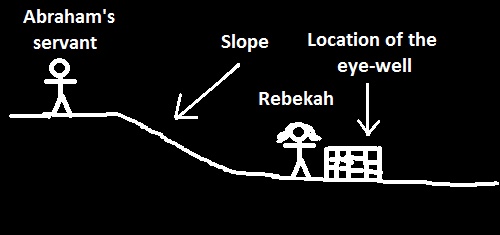
Keep this in mind as we look at the next verses.
In verse fifteen of this week's Torah portion passage, there are symbolic symbols of the pitcher and Rebecha's shoulder:
Pitcher: The Isrealite People
Rebecah's Shoulder: The place of Shechem, which is Hebrew for shoulder
This is a type of hint of a symbolic prophetic account in which the Israelites will arrive at Shechem (shoulder) where Mount Gerizim and Mount Ebal are located, which is noted in the book of Joshua
Joshua 8:33 And all Israel, and their elders, and officers, and their judges, stood on this side the ark and on that side before the priests the Levites, which bare the ark of the covenant of the LORD, as well the stranger, as he that was born among them; half of them over against mount Gerizim, and half of them over against mount Ebal; as Moses the servant of the LORD had commanded before, that they should bless the people of Israel.
!!!hwhy Kl dbk
Verse seventeen through twenty
17 And the servant ran to meet (encounter) her, and said, I shall swallow (drink) now a little water from your pitcher. 18 And she said, Imbibe (Drink), my lord (master): and she hurried (hastened), and she descended (let down) her pitcher upon her hand, and she had him quaff (drink). 19 And she finished to have him quaff (drink), and she said, I will draw for your camels also until if they have finished to imbibe (drink). 20 And she hurried (hastened), and she emptied her pitcher to the trough, and she ran still to the bore-well to draw, and she drew for all of his camels.
Think of all the times Rebekah went down the slope and up the slope just to provide water for Eliezer, his men, and the ten camels. That was a lot of leg work, let alone Rebekah had to utilize more of her legs going up the slope with full pitchers of water on her shoulders. This would most likely be the size of the pitcher that Rebekah would have carried to the well
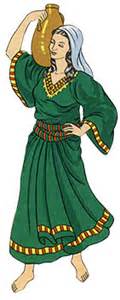
The size of a typical water pitcher would have carried roughly two gallons.
This is a typical camel from the Middle East called a Dromedary Camel
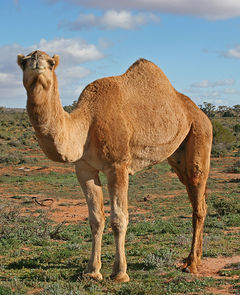
This is what the Wikipedia website says regarding the camel's weight
"...dromedaries [weigh] 300 to 600 kg (660 to 1,320 lb)".
This is what the Wikipedia website also says regarding these Dromedary Camels regarding their consumption of water
"...a 600 kg (1,300 lb) camel can drink 200 L (53 US gal) of water in three minutes".
One camel, we'll say, can drinking potentially fifty gallons of water. That would take Rebekah with a two gallon pitcher potentially twenty five times to potentially quench just one of those camels. Now, multiply that with ten camels. That would be potentially 500 gallons of water. That would take Rebekah potentially 250 times to quench all ten camels, not including Eliezer and his men who were with him. This obviously would have taken a long time, probably between one to two hours. Did her family wondered what was taking Rebekah so long coming back from the well? The scriptures don't say. How would the ladies like to do this today? In a positive sense, it will give them good exercise.
This scene can be compared to the Samaritan woman, which is noted in the Gospel of John
John 4:5 Then cometh He to a city of Samaria, which is called Sychar, near to the parcel of ground that Jacob gave to his son, Joseph. 6 Now Jacob's well was there. Yeshua therefore, being wearied with His journey, sat thus on the well: and it was about the sixth hour. 7 There cometh a woman of Samaria to draw water: Yeshua saith unto her, Give Me to drink. 8 (For His disciples were gone away unto the city to buy meat.) 9 Then saith the woman of Samaria unto Him, How is it that Thou, being a Jew, askest drink of me, which am a woman of Samaria? For the Jews have no dealings with the Samaritans. 10 Yeshua answered and said unto her, If thou knewest the gift of hwhy, and Who it is that saith to thee, Give Me to drink; thou wouldest have asked of Him, and He would have given thee Living Water. 11 The woman saith unto Him, Sir, Thou hast nothing to draw with, and the well is deep: from whence then hast Thou that Living Water? 12 Art Thou greater than our father, Jacob, which gave us the well, and drank thereof himself, and his children, and his cattle? 13 Yeshua answered and said unto her, Whosoever drinketh of this water shall thirst again: 14 But whosoever drinketh of the Water that I shall give him shall never thirst; but the Water that I shall give him shall be in him a well of Water springing up into Everlasting Life. 15 The woman saith unto Him, Sir, give me this water, that I thirst not, neither come hither to draw. 16 Yeshua saith unto her, Go, call thy husband, and come hither. 17 The woman answered and said, I have no husband. Yeshua said unto her, Thou hast well said, I have no husband: 18 For thou hast had five husbands; and he whom thou now hast is not thy husband: in that saidst thou truly. 19 The woman saith unto Him, Sir, I perceive that Thou art a Prophet. 20 Our fathers worshipped in this mountain; and Ye say, that in Jerusalem is the place where men ought to worship. 21 Yeshua saith unto her, Woman, believe Me, the hour cometh, when ye shall neither in this mountain, nor yet at Jerusalem, worship the Father. 22 Ye worship ye know not what: we know what we worship: for Salvation is of the Jews. 23 But the hour cometh, and now is, when the true worshippers shall worship the Father in Spirit and in Truth: for the Father seeketh such to worship Him. 24 hwhy is a Spirit: and they that worship Him must worship Him in Spirit and in Truth. 25 The woman saith unto Him, I know that Messias cometh, who is called Messiah: when He is come, He will tell us all things. 26 Yeshua saith unto her, I that speak unto thee am He. 27 And upon this came His disciples, and marvelled that He talked with the woman: yet no man said, What seekest Thou? Or, Why talkest Thou with her? 28 The woman then left her waterpot, and went her way into the city, and saith to the men, 29 Come, see a Man, which told me all things that ever I did: is not this the Messiah? 30 Then they went out of the city, and came unto Him.
The Samaritan woman at the well was like Rebekah, except she came to the well in the middle of the day and not at night like the rest of the women would normally do, because she was divorced multiple times and did not want to be seen with other women. Yeshua asked for water from the Samaritan woman like Eliezer did to Rebekah.
Yeshua also saysthat those who believe in Him shall have the flow of living water, which is noted in the Gospel of John
John 7:38 He that believeth on Me, as the scripture hath said, out of his belly shall flow Rivers of Living Water.
That "Living Water" is Yeshua.
Also, verses seventeen through twenty could be connected to a verse in the book of Revelation
Revelation 22:17 And the Spirit and the bride say, Come. And let him that heareth say, Come. And let him that is athirst come. And whosoever will, let him take the Water of Life freely.
This sounds like Eliezer, the symbolic Spirit, and Rebekah, the symbolic Bride, is speaking to us to drink "the Water of Life", who is Yeshua, via The Holy Spirit.
Verse twenty-one
21 And the man was with wonder (astonishment) to her with scratching (silence, engraving) to know that hwhy had prospered his journey, if not.
Eliezer was watching to see if hwhy had answered his prayers as well as Abraham's command to him, as noted in verses twelve through fourteen.
Verse twenty two
22 And was, as the which the camels, they had finished to imbibe (drink), and the man took a golden nose ring (earring) of a half shekel (broken shekel) of his weight (scale), and two bracelets (arm clasps) upon her hands, of ten gold of their weight (scale);
The ring mentioned was the same nose ring stated in verse forty seven. My only thought regarding the weight of the ring, being a half shekel, is the requirement regarding the Israelite males of certain ages who were required to pay a half-shekel in their enumeration, which is noted in the Torah portion of P'kudey, in the book of Exodus
Exodus 38:26 A bekah for a head (skull) was from the half shekel on the Shekel (Scale) of the Sanctuary, for all that had gone over upon the visitation (mustering, numbering), from a son of twenty years and the upward, for six hundred thousand and three thousand and the five hundred and the fifty.
Looking at the word HALF SHEKEL (BROKEN SHEKEL)
The Hebrew word for half shekel (broken shekel) is "beh-kah"- Bet, Resh, Ayin (eqb). It is from Strong's Concordance number 1235, and its definition
From H1234; a section (half) of a shekel, that is, a beka (a weight and a coin): - bekah, half a shekel.
from 1234 "bah-kah" (eqb), and its definition
A primitive root; to cleave; generally to rend, break, rip or open: - make a breach, break forth (into, out, in pieces, through, up), be ready to burst, cleave (asunder), cut out, divide, hatch, rend (asunder), rip up, tear, win.
Mark Biltz of El Shaddai Ministires noted that this meant "broken" or "cut". This is where we get our modern English word "buck", an alternate word for dollar.
The only reason that it became a half-shekel that it was originally "cut pieces" of the shekel during the time of Abraham, and later in time, it developed to become standardized as "a half-shekel".
Even though this Hebrew word have common letters- Bet and Kuph to Rebekah's Hebrew name, is it possible that the "bekah", which is a half a shekel, was a play on Rebekah's name when she received that ring weighing a "half a shekel" as a remembrance of her? Just a thought.
The other half of the verse where Eliezer gave her two gold bracelets worth ten shekels, could be symbolic for the two houses of Israel, and the weight of ten shekels could be symbols of couple of things: one- they could be the tithe for Isaac to have a bride, and two- it could be symbolic to the ten northern tribes of Israel. Three- In Leviticus, there is a commandment for the evaluation of a vow for both male and female of certain ages, and it is noted in the Torah portion of B'khukothai, in the book of Leviticus
Leviticus 27:1 And hwhy spoke to Moses, to say, 2 Speak to the Sons of Israel, and you shall say to them, When a man shall make wondrous (wonderful) a vow, on your evaluation (estimation) of the souls belonging to hwhy, 3 and your evaluation (estimation) shall be of the remembered one (male) from a son of twenty years and unto a son of sixty years, and your evaluation (estimation) shall be fifty shekels of silver on the Shekel of the Sanctuary. 4 And if she shall be an expressed one (a female), and your evaluation (estimation) shall be thirty shekels. 5 And if shall be from a son of five years and unto a son of twenty years, and your evaluation (estimation) of the remembered one (male) shall be twenty shekels, and for the expressed one (female) shall be ten shekels.
It was most likely that Rebekah was around twenty years old or younger, because she received the weight of ten shekels of gold through her bracelets. These are just thoughts.
Verses twenty three and twenty four
23 And said, The daughter of who are you? Tell (Declare) to me now: that exists the house of your father a place for us to lodge (stay)? 24 And she said to him, I am the daughter of Bethuel, son of Milcah, which was birthed to Nahor.
This is the same account that Abraham's servant, Eliezer said in verse forty seven.
Notice what Rebekah did not say in her genealogy. She said her grandmother's name, but not her mother's name. Rebekah grew up with her, because it was "her" estate as it is mentioned in the next Torah passage.
In verse twenty of this week's Torah portion passage, the Hebrew word for has is "Yesh". It could possible to retranslated like this:
23 And said, The daughter of who are you? Tell (Declare) to me now: Is that Yeshua the house of your father a place for us to lodge (stay)? 24 And she said to him, I am the daughter of Bethuel, son of Milcah, which was birthed to Nahor.
Verse twenty eight
28 And the young woman, she ran, and she told (declared) to the house of her mother according to these words [(as these words)].
The house of her "mother". Based on this information, it was most probable that Bethuel's wife was a wealthy woman, and he married for "financial security". In my opinion, Rebekah and her mother must have bad blood between them. Based on what we know now in the account in verse fifty five, which will be commented later, it is strongly possible why her mother's name was not worthy to be mentioned.
Looking at the word BETHUEL
The Hebrew word for Bethuel is "B'thoo-eyl"- Bet, Tav, Vav, Aleph, Tav (lawtb). It is from Strong's Concordance number 1328, and its definition
Apparently from the same as H1326 and H410; destroyed of God; Bethuel, the name of a nephew of Abraham, and of a place in Palestine: - Bethuel. Compare H1329.
Bethu
from 1326 "bah-thah" (htb), and its definition
Probably an orthographical variation for H1327; desolation: - waste.
from 1327 "bah-thah" (htb), and its definition
Feminine from an unused root (meaning to break in pieces); desolation: - desolate.
El
from 410 "eyl" (la), and its definition
Shortened from H352; strength; as adjective mighty; especially the Almighty (but used also of any deity): - God (god), X goodly, X great, idol, might (-y one), power, strong. Compare names in “-el.”
from 352 "ah-yeel" (lya), and its definition
From the same as H193; properly strength; hence anything strong; specifically a chief (politically); also a ram (from his strength); a pilaster (as a strong support); an oak or other strong tree: - mighty (man), lintel, oak, post, ram, tree.
from 193 "ool" (lwa), and its definition
From an unused root meaning to twist, that is, (by implication) be strong; the body (as being rolled together) also powerful: - mighty, strength.
Bethuel means "Destroyed of El", or "Desolated of El", or El Destroys, or El Desolates. Based on his name, he did not have a successful life until he "married" into it. Mark Biltz of El Shaddai Ministries noted his name's meaning too.
hwhy did not want her name mentioned. To me, it compares to the time at Purim when we make noise everytime H****'s name is mentioned (you know who I am talking about). We will learn more about Rebekah's mother later.
This is a pedigree chart of Terah down to Rebekah
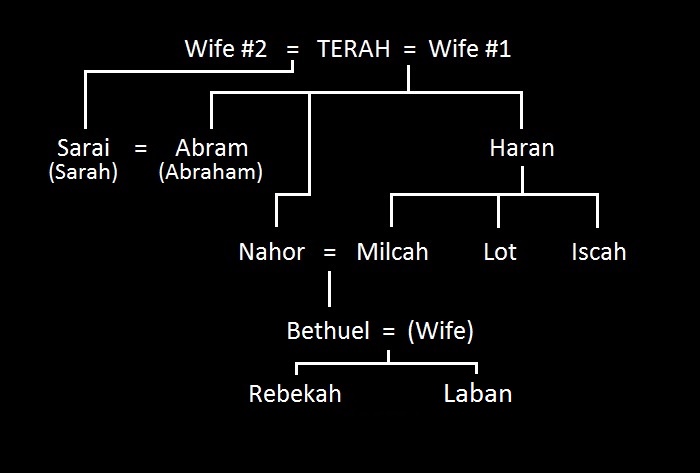
Looking at their names and their definitions in verse twenty four:
Bethuel (In Hebrew "B'thoo-eyl" (lawtb) (S1328 [1326 + 410])): Destruction of El, El destroys
Milcah (In Hebrew "Meel-kah" (hklm) (S3876)): Queen
Nahor (In Hebrew "Nah-khohr" (rwxn) (S5152)): Snorer, snort, nostrils
Putting the definitions of their names together, it makes a phrase:
"El destroys a queen through the nostrils"
This could be compared to what the apostle John noted in the book of Revelation
Revelation 14:8 And there followed another angel, saying, Babylon is fallen, is fallen, that great city, because she made all nations drink of the wine of the wrath of her fornication. 9 And the third angel followed them, saying with a loud voice, If any man worship the beast and his image, and receive his mark in his forehead, or in his hand, 10 The same shall drink of the Wine of the Wrath of hwhy, which is poured out without mixture into the Cup of His Indignation; and he shall be tormented with fire and brimstone in the presence of the holy angels, and in the presence of the Lamb:
Revelation 17:3 So he carried me away in the spirit into the wilderness: and I saw a woman sit upon a scarlet coloured beast, full of names of blasphemy, having seven heads and ten horns. 4 And the woman was arrayed in purple and scarlet colour, and decked with gold and precious stones and pearls, having a golden cup in her hand full of abominations and filthiness of her fornication: 5 And upon her forehead was a name written, MYSTERY, BABYLON THE GREAT, THE MOTHER OF HARLOTS AND ABOMINATIONS OF THE EARTH.
Verses twenty nine and thirty
29 And to Rebekah was a brother, and his name was Laban: and Laban ran to the man to the outside to the eye-well. 30 And was, as seeing ta-the nose ring (ear ring) and ta-the bracelets (hand clasps) upon the hands of his sister, and as he heard ta-the words of Rebekah, his sister, to say, Thus spoke the man to me; And came to the man; and behold, was standing upon the camels upon the eye-well.
Looking at the word LABAN
The Hebrew word for Laban is "Lah-vahn"- Lamed, Bet, Nun Sophit (Nbl). It is from Strong's Concordance number 3837, and its definition
The same as H3836; Laban, a Mesopotamian; also a place in the Desert: - Laban.
from 3836 "lah-vahn" (Nbl), and its definition
A primitive root; to be (or become) white; also (as denominative from H3843) to make bricks: - make brick, be (made, make) white (-r).
Laban was a "Pale Face" man. In other words, Laban was most likely named for his very light "whitish" skin.
When Laban saw the gold that his sister was wearing, he had the equivalent of shekel signs in his eyes ("Kaching! Kaching!). So he runs down to meet Eliezer, his men and the camels by the eye of the well and says with joy of greed and ulterior motives, with pomp and fanfare, confetti and with a marching band... I mean musicians playing. Hear Laban now in the next verse.
Verse thirty-one
31 And said, Come, blessed of hwhy!; To why are you standing on the outside? And I, I have made face (prepared) the house and a place for the camels!
This was Laban's equivalent of saying to Eliezer "SHOW ME THE MONEY!!!".
Verses thirty two and thirty three
32 And the man came to the house: and unloaded (ungirded, loosened, opened wide?) the camels, and gave straw and fodder for the camels, and water to wash his feet and the feet of the men which were with him. 33 And was set to his face to eat: and said, I will not eat until if (but) I have spoken my word. And said, Speak.
As we know, Eliezer, Abraham's servant, repeats the story mentioned earlier from the beginning of this week's Torah portion chapter.
In verse thirty three of this week's Torah portion passage, the Hebrew text for "and was set" is "Vay-yeesehm"- Vav, Yod, Yod, Shin, Mem Sophit (Msyyw). Notice that there are two Yods in the Hebrew text. The Yod is a Paleo-Hebrew picture of a hand. This could be interpreted that it was hwhy's "Two Hands" that was involved in the setting to prepare Eliezer, Abraham's servant, to speak of his testimony at the bored-well, or eye-well.
Verse thirty five
35 And hwhy has blessed ta-my lord (master) much; and became great: and was given to him flocks, and herds, and silver, and gold, and male servants, and female servants, and camels, and the donkeys.
The phrase "became great" in the Hebrew text is "Vay-yee-dahl"- Vav, Yod, Yod, Dalet, Lamed (ldyyw). The Yod is a Paleo-Hebrew picture of a hand. This could be interpreted that it was hwhy's "Two Hands" that was involved in making Abraham great.
!!!hwhy Kl dbk
Verse forty two
42 And I came today (the day) to the eye-well, and said, hwhy, Elohim of my lord (master), Abraham, if you exist now, prosper my way which I shall go upon her:
The Hebrew word for "exist" if "Yesh". This could say that "Yeshua" was prospering Eliezer, Abraham's servant's way. This could be retranslated like this:
42 And I came today (the day) to the eye-well, and said, hwhy, Elohim of my lord (master), Abraham, if you are Yeshua now, prosper my way which I shall go upon her:
!!!hwhy Kl dbk
Verse forty nine
49 And now, if you exist doing kindness and truth at ta-my lord (master), tell (declare) to me: and if not, tell (declare) to me; and I may face upon the right, or upon the small (left).
This is the last statement that Eliezer spoke to the family. The last part "upon the right or upon the left" is the similar phrase Abraham said in giving the Lot choice which side of the land he wanted, which is noted in the Torah portion of Lekh L'kha, in the book of Genesis
Genesis 13:8 and Abram said to Lot, Not now, she shall be no strife (contention) between me and between you, and between my shepherds (tenders) and between your shepherds (tenders); for we are men, brothers. 9 That not all of the land is to your face? Separate (Split) now from upon me: if the small (left), and I to the right; and if the right, and I to the small (left).
It is probable that Eliezer was present when Abraham said this to Lot, and he used the similar words in his case, putting his fate in Rebekah's family's hands to decide.
The Hebrew word for "will" if "Yesh". This could say that "Yeshua" was would do kindness and to with Abraham. This could be retranslated like this:
49 And now if you Yeshua does kindness and truth with ta-my master, tell to me: and if not, tell to me; and I may face upon the right, or upon the left.
!!!hwhy Kl dbk
Verses fifty and fifty-one
50 And Laban and Bethuel answered, and they said, From hwhy has gone out the word: we are not able at speaking to you evil or good. 51 Behold, Rebekah is to your face, take her, and go, and she shall be the woman (wife) of the son of your lord (master) as the which hwhy has spoken.
This phrase "...we are not able to speak to you evil or good" is the similar phrase hwhy told Laban when Laban was pursing Jacob while Jacob was returning to Caanan from Padan Aram, which is noted in the Torah portion of Vay-Yeytsey, in the book of Genesis
Genesis 31:24 And Elohim came to Laban, the Aramite, in a calm-dream of the night, and said to him, Guard (Watch, Observe, Take heed) for yourself, lest you speak with Jacob from good unto evil.
In Laban's pursuit against Jacob, Rebekah's son, hwhy was recalling to Laban on his words with his father which he spoke to Eliezer regarding taking Rebekah to be a wife for Isaac, by reminding Laban in many ways "Honor your words as you did regarding you sister Rebekah, for this is her son. Honor her seed". As the Hebraic Roots/Messianic teachers say, "History repeats itself".
Note this response in verse fifty. This came from Laban and Bethuel. He gave Rebekah to Eliezer with "no strings attached". Keep this in mind later on.
In verse fifty of this week's Torah portion passage, when it says "From hwhy has come out the word", the Word is symbolically and literally "Yeshua", who is the Word, which is noted in the Gospel of John
John 1:1 In beginning was the Word, and the Word was with Elohim, and the Word was Elohim. 2 The Same was in the beginning with Elohim.... 14 And the Word was made Flesh, and dwelt among us, (and we beheld His Glory, the Glory as of the Only Begotten of the Father,) full of Grace and Truth.
!!!hwhy Kl dbk
Verses fifty two and fifty three
52 And was, that as the which the servant of Abraham had heard ta-their words, and bowed to hwhy to the Earth. 53 And the servant brought out vessels of silver, and vessels of gold, and garments, and gave to Rebekah: and gems (precious items) were given to her brother and to her mother.
Notice that it did not say Eliezer gave precious items to Bethuel. Why not? The scriptures do not say. Laban fulfilled his ulterior motives in bringing Eliezer to the house. He got his goods.
Verse fifty four
54 And they ate and they imbibed (drank), he and the men which were with him, and they lodged (stayed);...
This was a key moment in this "divine appointment". The key phrase in this verse is "And they ate and drank..." Remember me explaining "the Food Covenant", based on Abraham's account with the King of Salem in the Torah portion of Lekh L'kha, in the Torah portion of Genesis, by partaking the bread and wine. Thanks to Rico Cortes of Wisdom In Torah Ministries for revealing this. For those who don't know about it, it was the culture of the day. When two parties make an agreement, it was the culture's equivalence of shaking hands, but in the Middle Eastern culture, it was by eating and drinking, like partaking of Yeshua's body (bread) and blood (wine). The Food Covenant was the finalization of the agreement, and once it was taken, it cannot be broken. Laban and Bethuel agreed to Eliezer's agenda, and they partook the Food Covenant. Eliezer was smart in not eating anything until he stated his purpose for coming to town. Once the Food Covenant was taken, after they, especially Laban, agreed to his purpose in taking Rebekah with him for Isaac for a wife, it could not be taken back and cannot be broken. The "Contract" was finalized for Rebekah was to be Isaac's wife.
Verses fifty four and fifty five
54 ...And they arose in the breaking period (morning), and said, Send me away to my lord (master). 55 And her brother and her mother said, The young woman, she will dwell with us days, or ten; Afterwards, she may go.
Wait a minute!!! This is not what Laban and Bethuel, his father, said back in verses fifty and fifty-one, because they said "...take her and go..." with "NO STRINGS ATTACHED". Notice it was not Bethuel that was with Laban making this statement, but "his mother" who owns the estate the whole family dwells. Based on this information, we can now say that Laban got his greed and crookedness and wickedness characteristics from "his mother"! Laban tried to take back his agreement with his father to Eliezer, and has now sided with his mother. It sounds like that the mother had a "little chat" with Laban that night, and plotted this agenda to make Eliezer stay and try to get more goods from him before he returned to his master, Abraham with Rebekah. No wonder Rebekah did not mention her mother's name in her genealogy as noted earlier in verses twenty four and forty seven.
Notice also that Laban and his mother tried to nullify the words that Laban and his father, Bethuel, said earlier, but Bethuel and Laban's Food Covenant with Eliezer cannot be broken. Also, since they knew they couldn't break the Food Covenant, they tried to "add" words, in order to slow down the process of Laban and Bethuel's original statement, because Laban and his mother were sublimely wicked in their ways, and wanted to keep Eliezer with them, hoping in their greed that they would receive more treasures from him. This was probably one of the basis that Moses commanded Israel in the Torah portions of Va-Ethkhanan and R'ey, in the book of Deuteronomy
Deuteronomy 4:2 2 You shall not add upon the Word which I am commanding you, and you shall not diminish (remove, scrape off) from him, to keep ta-the Commandments of hwhy, your Elohim, which I am commanding you.
Deuteronomy 12:32 ta All of the Word which I am commanding you, you shall guard (keep, observe, take heed) to do, you shall not add upon him, and you shall not diminish from him.
Also, the way they said it, they were indirectly taking Rebekah "hostage" in this situation. This is the same matter that Laban did to Jacob, Rebekah's sister's son, when Laban did what he could to keep Jacob hostage in his household where Jacob served him seven years for Rachel, but Laban gave him Leah, then "imprisons" him by making Jacob serve another seven years for Rachel. Then Laban accepts Jacob's offer to take the spotted, speckled and striped animals, but Laban and his men takes them all away, leaving Jacob to start from scratch for six more years to create a flock for his own.
What a greedy bunch Laban and his mother were, and now they are being mean to Rebekah treating her as such, but in "a nice way". I would not be surprised if Rebekah was the real "Cinderella", and would be probable the this scripture account is where "Cinderella" came to be. In my opinion, based on this chapter account, Rebekah was treated more like a "servant" more than a sister/daughter, and her mother was "the wicked step mother" like in the Cinderella story.
Verse fifty six
56 And said to them, Do you not delay me, and hwhy has prospered my way; send me away, and I will go to my lord (master).
Eliezer responded to Laban and his mother not to hold him back from his journey back to his lord, but were Laban and his mother content with that answer? Noooo! So they devised another hurdle, hoping they can make him stay, as noted in the next verse.
Verse fifty seven
57 And they said, We will call to the young woman, and we will inquire her ta-her mouth.
Yeah, right! They were just trying to put in another roadblock, not what Laban and his father originally spoken in verse fifty and fifty-one. They did not say in the original statement that they need to have Rebekah's approval. Now they want Rebekah to have a say.
Doesn't this sound like HaSatan trying to put "hurdles" or "obstacles" in the way of our lives, trying to hinder us from fulfilling and reaching our destinies? HaSatan, in this case with Eliezer, was using Laban and his "wicked mother" in trying so hard to prevent and delay Eliezer from fulfilling his calling and hwhy's timing of Eliezer to get back to Isaac with Rebekah on his birthday.
Verse fifty eight
58 And they called to Rebekah, and they said to her, Will you go with this man?...
Rebekah was smart. She knew what they were up to no good. She was not going to play their game, and she responded by saying
58 ...And she said, I will go.
She was saying "I'm outa here! I'm done hanging around with the both of you and your evil schemes". Also it was an indirect statement to them saying "How dare the two of you use me as vessel of hostage for your agenda to have Eliezer to give more as an act of ransom to fulfill your greed". This sounds a lot like what the extreme Islamic terrorists are doing today to getting finances to support their cause. Do you think that they might be descendants of Laban and his mother? Just a thought.
Verses fifty nine and sixty
59 And they sent away ta-Rebekah, their sister, and ta-her nurse (suckle nurse), and ta-the servant of Abraham, and ta-his men. 60 And they blessed ta-Rebekah, and they said to her, Our sister, you will be of thousands of myriads, and your seed shall possess (occupy) ta the gate of their haters.
Who were the "they" that said "their sister"? Did Rebekah have more than one sibling? It sure looks like it. The scriptures do not say, but she had to have at least two brothers or at least one brother and one sister. An idea of the siblings is noted in the Torah portion of Vay-Yeystey, in the book of Genesis
Genesis 30:35 and removed in that day ta-the kids: the ring streaked (bands, striped) and the variegated, and ta all of the kids: the spotted and the variegated, and of all which were white on him, and all of the brown (black) among the sheep, and gave into the hand of his sons, 36 and set a journey of three days between himself and between Jacob: and Jacob was tending ta-the remainder of the flocks of Laban.
According to this account, Rebekah has brothers. We can now say that the "they" in verse fifty nine included Laban and other brothers.
By the way, the nurse that was given to Rebekah was 99.999% guaranteed to be Deborah, which is noted in the Torah portion of Vay-Yishlakh, in the book of Genesis
Genesis 35:8 And Deborah, nurse of Rebekah, she died, and she was buried from below by Beth El under the oak: and called his name Allon Bachuth (Oak of Weeping).
Verse sixty-one
61 And Rebekah, she arose, and her young women, and they rode upon the camels, and they went after the man: And the servant took ta-Rebekah, and left.
Rebekah and her maids rode on the ten camels. We know why the camels were with Eliezer, and they "followed the man", and it is compared to the wise virgins following the bridegroom, which is noted in the Gospel of Matthew
Matthew 25:10 ...the bridegroom came; and they that were ready went in with him to the marriage:
Rebekah was a type and shadow of the followers of Yeshua.
At the end of this major part of the story, based on the circumcstances of events of what we have read, we could see that this family was "a dysfunctional family".
As the former radio news commentator Paul Harvey says "And now, the rest of the story", starting in the next verse.
Verse sixty two
62 And Isaac came, from coming at Beer Lahai Roi; and he was dwelling in the land of the Negev. 63 And Isaac had gone out to meditate in the field to the facing of the mixing period (evening): and lifted up his eyes, and looked, and behold, camels were coming. 64 And Rebekah, she lifted up ta-her eyes, and she saw ta-Isaac, and she got off (lightened off) from upon the camel. 65 And she said to the servant, Who is this man that is [(the one)] walking in the field to meet (encounter) us? And the servant said, He is my lord (master): And she took the veil, and she was concealed (covered). 66 And the servant recounted (scrolled, accounted) to Isaac ta all of the words which were done. 67 And Isaac brought her to the tent of Sarah, his mother, and took ta-Rebekah, and she became to him for a woman (wife); and loved her: And Isaac was comforted after his mother.
Looking at the word BEER LAHAI ROI
The Hebrew word for Beer Lahai Roi is "B'eyr L'khai Roh-ee" (yar yxl rab). It is from Strong's Concordance number 883, and its definition
From H875 and H2416 (with prefix) and H7208 [[actually 7210]]; well of a living (One) my Seer; Beer-lachai-roi, a place in the Desert: - Beer-lahai-roi.
Beer
from 875 "b'eyr" (rab), and its definition
From H874; a pit; especially a well: - pit, well.
from 874 "bah-ahr" (rab), and its definition
A primitive root; to dig; by analogy to engrave; figuratively to explain: - declare, (make) plain (-ly).
Lahai
from 2416 "khai" (yx), and its definition
From H2421; alive; hence raw (flesh); fresh (plant, water, year), strong; also (as noun, especially in the feminine singular and masculine plural) life (or living thing), whether literally or figuratively: - + age, alive, appetite, (wild) beast, company, congregation, life (-time), live (-ly), living (creature, thing), maintenance, + merry, multitude, + (be) old, quick, raw, running, springing, troop.
from 2421 "khai-yah" (hyx), and its definition
A prim root (compare H2331, H2424); to live, whether literally or figuratively; causatively to revive: - keep (leave, make) alive, X certainly, give (promise) life, (let, suffer to) live, nourish up, preserve (alive), quicken, recover, repair, restore (to life), revive, (X God) save (alive, life, lives), X surely, be whole.
Roi
from 7210 "rah-ee" (yar), and its definition
From H7200; sight, whether abstractly (vision) or concretely (a spectacle): - gazingstock, look to, (that) see (-th).
from 7200 "rah-ah" (har), and its definition
A primitive root; to see, literally or figuratively (in numerous applications, direct and implied, transitively, intransitively and causatively): - advise self, appear, approve, behold, X certainly, consider, discern, (make to) enjoy, have experience, gaze, take heed, X indeed, X joyfully, lo, look (on, one another, one on another, one upon another, out, up, upon), mark, meet, X be near, perceive, present, provide, regard, (have) respect, (fore-, cause to, let) see (-r, -m, one another), shew (self), X sight of others, (e-) spy, stare, X surely, X think, view, visions.
Beer Lahai Roi means "The well by the living one who has seen me".
This is the same well location where Hagar- "the stranger"- was visited by the Messenger of hwhy when Hagar was running away from Sarah, her mistress while pregnant with Ishmael, which is noted in the Torah portion of Lekh L'kha, in the book of Genesis
Genesis 16:7 And the Messenger of hwhy found her upon an eye-well of the water in the wilderness, upon the eye-well on the way to Shur. 8 And said, Hagar, female servant of Sarai, whence from this did you come, and where are you going? And she said, I am running away (bolting away) from the face of Sarai, my mistress (valiantess). 9 And the Messenger of hwhy said to her, Return to your mistress (valiantess), and humble yourself under her hands. 10 And the Messenger of hwhy said to her, That multiplying, I will multiply ta-your seed, and shall not be enrolled (scrolled, numbered) with the multitude. 11 And the Messenger of hwhy said to her, Behold, you are pregnant (conceived), and you shall birth a son, and you shall call his name, Ishmael; for hwhy has heard to your affliction. 12 And he shall be a wild donkeyish (onagerish, wild fruit) Adam; his hand shall be against all, and the hand of all shall be against him; and shall tabernacle (abide, dwell) upon the face of all of his brothers. 13 And she called the Name of hwhy that spoke to her, You, El seeing me: for said of her, That also there I have looked after the seer of me. 14 Upon thus, was called to the well, Beer Lahai Roi; behold, is between Kadesh and between Bered.
What was Isaac doing, dwelling in the area where Ishmael's mother was located before returning to Sarah? Why was he at the Negev? Did Isaac have contact with Ishmael shortly after his mother's death, and was he told of the well Hagar stopped at? I don't have an answer at this time.
This is a map showing the location of Beer Lahai Roi highlighted in black
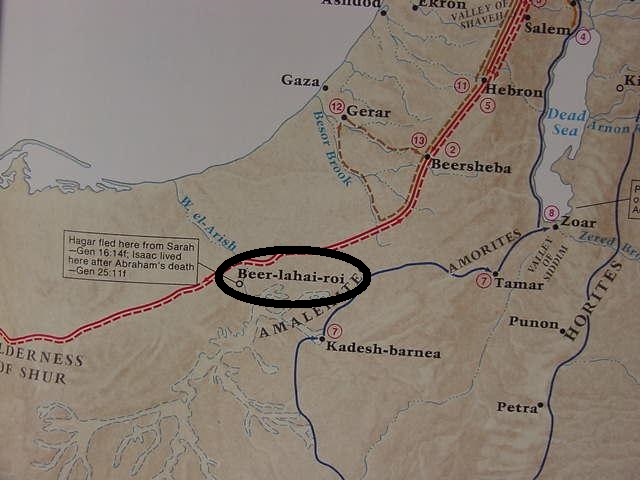
Verse sixty three
63 And Isaac had gone out to meditate in the field to the facing of the mixing period (evening):...
The sun was setting, and Isaac was out in the field. I am starting to put two and two together.
Verse sixty three
63 ...and lifted up his eyes, and looked, and behold, camels were coming.
Wedding bells, and music playing "Here comes the bride!"
Verse sixty four
64 And Rebekah, she lifted up ta-her eyes, and she saw ta-Isaac, and she got off (lightened off) from upon the camel.
It was most likely that in the culture of the day, the men helped the women off the camels., but she was so ready for him, that she went off the camel herself. Was the camel was "still walking" when she got off? Probably not. She must have been an atheletic of her day. She must of had strong legs, because she had enough "leg work" from gathering all that water back for Eliezer, his men and the ten camels at her home town.
Verse sixty five
65 And she said to the servant, Who is this man that is [(the one)] walking in the field to meet (encounter) us? And the servant said, He is my lord (master): And she took the veil, and she was concealed (covered).
At that moment, she was ready to go into her new home to become his wife.
Indirecrly related, the veil was like a symbolic seal of the Ruakh HaKodesh (the Holy Spirit), and it is noted in the apostle Paul's letter to the assembly in Ephesus
Ephesians 1:10 That in the dispensation of the fulness of times He might gather together in one all things in Messiah, both which are in the heavens, and which are on earth; even in Him: 11 In whom also we have obtained an inheritance, being predestinated according to the purpose of Him who worketh all things after the counsel of His own will: 12 That we should be to the praise of His glory, who first trusted in Messiah. 13 In whom ye also trusted, after that ye heard the Word of Truth, the Gospel of your salvation: in whom also after that ye believed, ye were sealed with that holy Spirit of Promise,
Verses sixty six and sixty seven
66 And the servant recounted (scrolled, accounted) to Isaac ta all of the words which were done. 67 And Isaac brought her to the tent of Sarah, his mother, and took ta-Rebekah, and she became to him for a woman (wife); and loved her: And Isaac was comforted after his mother.
Notice that it said that Isaac took Rebekah into "Sarah's tent". That means Isaac kept his mother's tent after she died in Hebron three years earlier when he was just thirty seven years old, and dwelled in it. He most likely lived in his mother's tent since they separated themselves from Abraham after Abraham was about to sacrifice Isaac before he was stopped and was provided a ram in Isaac's place. Isaac was also mourning her death for three years, and now, it is three years later. That means Isaac was forty years old at this time, which is noted in the Torah portion of Toldoth, in the book of Genesis
Genesis 25:20 And Isaac was as son of forty years in his taking ta-Rebekah, daughter of Bethuel, the Aramite, from Padan Aram, sister to Laban, the Aramite, to himself for a wife.
Ending this chapter on an important note. As of November 12, 2014, I did not see this before until tonight. The factors in this latest account:
*Isaac was out in the field at sunset in the evening- the new day
*Here comes his bride, Rebekah, to be his wife, with Eliezer, a type and shadow of the Ruakh HaKodesh, whom the angel went forth ahead of him to retrieve, just like Yeshua, the symbol of the Bridegroom, taking His five wise virgins in Matthew chapter twenty five
*Rebekah puts on her veil, and goes in with Isaac into his mother's tent to be Isaac's wife, as it became evening- the new day.
Let me put it this way. There were two times that hwhy met with Abraham and Sarah, and as I note in my strong opinion they both occurred on Sukkoth. In my humble, but strong opinion, this is the third Sukkoth account, and this happened on Isaac's fortieth birthday!- the first day of SUKKOTH! In other words, this was hwhy saying to Isaac, "Happy Birthday, Isaac. This is My birthday gift to you------> REBEKAH!!!".
Based on this analysis, Laban and his mother were preventing Eliezer and Rebekah from arriving to Isaac at hwhy's appointed time, which was in this case, Sukkoth. Today, HaSatan can use people or circumstances to prevent the believers from following hwhy's will and Yeshua's will, including Their Appointed Times. In this Torah portion case, HaSatan was using Laban and his mother to prevent Eliezer from fulfilling his calling to have Rebekah arrive at "the Appointed Time" on Isaac's birthday, which was Sukkoth.
This is an updated chart of Terah's pedigree
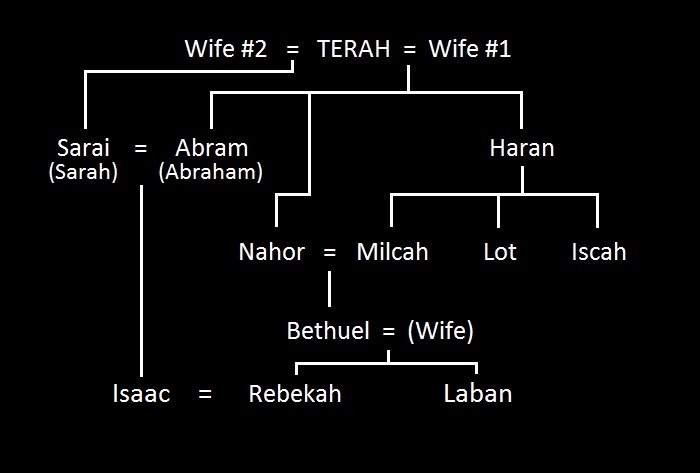
By the time Isaac was forty years old in marrying Rebekah, Abraham was 140 years old, three years after Sarah died.
Bill Cloud of Shoreshim Ministries and Jacob's Tent noted that since the account of Abraham and Isaac at Mount Moriah that Isaac wasn't mentioned again until this account of Rebekah becoming Isaac's wife. Bill Cloud connected this to Yeshua not being physically present on earth since His Resurrection until we as believers in Yeshua being His Bride will be brought to Him via the Ruakh HaKodesh (the Holy Spirit). Thank you Bill.
!!!hwhy Kl dbk
I do not know if anyone else has revealed this, but in my strong opinion, this chapter was a precursor relevence to the Fall High Holy Days:
Verses one through ten: YOM TERUAH
Abraham makes the call or "shout" to Eliezer to get a bride for Isaac.
Verses eleven through sixty-one: YOM KIPPUR
Eliezer afflicts his soul by praying to hwhy, and Rebekah afflicts her soul by going out of her way to get water for Eliezer, his men and his camels and later to leave her home and land to be a bride for Isaac.
This is what Isaiah said regarding Yom Kippur, which is noted in his book
Isaiah 58:6 Is not this the fast that I have chosen? To loose the bands of wickedness, to undo the heavy burdens, and to let the oppressed go free, and that ye break every yoke? 7 Is it not to deal thy bread to the hungry, and that thou bring the poor that are cast out to thy house? When thou seest the naked, that thou cover him; and that thou hide not thyself from thine own flesh? 8 Then shall thy light break forth as the morning, and thine health shall spring forth speedily: and thy righteousness shall go before thee; the glory of hwhy shall be thy rereward.
Rebekah afflicted her soul by drawing water many, many times to those in need, in her case, Eliezer, Abraham's servant, his men and the ten camels.
Verses sixty two through sixty seven: SUKKOTH
This is already explained above.
This chapter can be compared to the parable of the ten virgins, which is noted in the Gospel of Matthew
Matthew 25:1 Then shall the Kingdom of Heaven be likened unto ten virgins, which took their lamps, and went forth to meet the bridegroom. 2 And five of them were wise, and five were foolish. 3 They that were foolish took their lamps, and took no oil with them: 4 But the wise took oil in their vessels with their lamps. 5 While the bridegroom tarried, they all slumbered and slept. 6 And at midnight there was a cry made, Behold, the bridegroom cometh; go ye out to meet him. 7 Then all those virgins arose, and trimmed their lamps. 8 And the foolish said unto the wise, Give us of your oil; for our lamps are gone out. 9 But the wise answered, saying, Not so; lest there be not enough for us and you: but go ye rather to them that sell, and buy for yourselves. 10 And while they went to buy, the bridegroom came; and they that were ready went in with him to the marriage: and the door was shut. 11 Afterward came also the other virgins, saying, Lord, Lord, open to us. 12 But he answered and said, Verily I say unto you, I know you not. 13 Watch therefore, for ye know neither the day nor the hour wherein the Son of man cometh.
In this parable in Matthew, it relates to the Fall High Holy Days:
Verses five and six: YOM TERUAH
Verse seven: YOM KIPPUR
Verses ten and eleven: SUKKOTH
This is explained more in my teachings and informations by clicking on each of the links to get to the webpages.
YOM TERUAH
YOM KIPPUR
SUKKOTH/SOLEMN ASSEMBLY
THE PARABLE OF THE TEN VIRGINS
Ending, there are three/four different Hebrew words for drink:
v. 17 "gah-mah" (amg) S1572- swallow, drink
v. 17 "shah-thah" (hts) S8354- imbibe, drink
v. 46 "shah-kah" (hqs) S8248- quaff, gulp, drink
To me, this is the highlight of my commentary in this week's Torah portion.
CHAPTER 25
Genesis 25:1-18
Gen 25:1 And Abraham added and took a woman (wife) [(And was the adding of Abraham and the taking of a woman (wife))], and her name was Keturah. 2 And she birthed to him ta-Zimran, and ta-Jokshan, and ta-Medan, and ta-Midian, and ta-Ishbak, and ta-Shuah. 3 And Jokshan birthed ta-Sheba, and ta-Dedan. And the sons of Dedan, they were Asshurim, and Letushim, and Leummim. 4 And the sons of Midian were Ephah, and the Epher, and the Hanoch, and the Abida, and Eldaah. All of these were the sons of Keturah.
5 And Abraham gave ta-all which belonged to him to Isaac. 6 And to the sons of the concubines which belonged to Abraham, Abraham gave gifts, and sent them away from upon Isaac, his son, in still being alive, eastward to the land of the east.
7 And these were the days of the years of the life of Abraham which lived a hundred years, and seventy years and five years. 8 And Abraham expired, and the death [(and died)] in good greyness [(in a good old age)], an elder [(in old age)], and was satisfied; and was gathered to his People. 9 And Isaac and Ishmael, his sons, they buried him to the Cave of the Machpelah to the field of Ephron, son of Zohar, the Hittite, which is upon the facing of Mamre; 10 the field which Abraham bought (purchased) from ta the sons of Heth: there were buried Abraham and Sarah, his woman (wife). 11 And was, after the death of Abraham, and Elohim blessed ta-Isaac, his son; and Isaac dwelled with Beer Lahai Roi.
12 And these are the birthings of Ishmael, son of Abraham, which birthed Hagar, the Egyptianitess, the female servant of Sarah, to Abraham: 13 And these are the names of the sons of Ishmael in their names, by their birthings: the firstborn of Ishmael was Nebajoth; and Kedar, and Adbeel, and Mibsam, 14 and Mishma, and Dumah, and Massa, 15 Hadad, and Tema, Jetur, Naphish, and the Kedemah: 16 These were they, the sons of Ishmael, and these were their names, in their courted areas (courted settlements, courted villages), and in their walled areas (hamlets); two ten (twoteen, twelve) rulers by their mother areas [(by their communities)]. 17 And these were the years of the life of Ishmael, a hundred years, and thirty years and seven years: and expired and died [(and was the death)]; and was gathered to his people. 18 And they tabernacled from Havilah unto Shur, which is upon the face of Egypt in your going towards Assyria: upon the facing of all his brothers were accepted (fell upon, happened).
(NOTE: Not all verses will have comments)
Verses one through four
1 And Abraham added and took a woman (wife) [(And was the adding of Abraham and the taking of a woman (wife))], and her name was Keturah. 2 And she birthed to him ta-Zimran, and ta-Jokshan, and ta-Medan, and ta-Midian, and ta-Ishbak, and ta-Shuah. 3 And Jokshan birthed ta-Sheba, and ta-Dedan. And the sons of Dedan, they were Asshurim, and Letushim, and Leummim. 4 And the sons of Midian were Ephah, and the Epher, and the Hanoch, and the Abida, and Eldaah. All of these were the sons of Keturah.
Looking at the word KETURAH
The Hebrew word for Keturah is "K'toorah"- Kuph, Tet, Vav, Resh, Heh (hrwjq). It is from Strong's Concordance number 6989, and its definition
Feminine passive participle of H6999; perfumed; Keturah, a wife of Abraham: - Keturah.
from 6999 "katar" (rjq), and its definition
A primitive root (rather identical with H7000 through the idea of fumigation in a close place and perhaps thus driving out the occupants); to smoke, that is, turn into fragrance by fire (especially as an act of worship): - burn (incense, sacrifice) (upon), (altar for) incense, kindle, offer (incense, a sacrifice).
from 7000 "katar" (rjq), and its definition
A primitive root; to inclose: - join.
Keturah means "perfume", or "incense".
In verse three, it shows that Midian was Abraham's son by his second wife. Midian was the ancestor of Jethro, the father-in-law of Moses, also known as Reuel, as noted in the Torah portion of Sh'moth, in the book of Exodus
Exodus 2:15 ...And Moses bolted away (ran away, drove away) from the face of Pharaoh, and dwelled in the land of Midian: and dwelled upon the well. 16 And Moses bolted away (ran away, drove away) from the face of Pharaoh, and dwelled in the land of Midian: and dwelled upon the well. 16 And to the priest of Midian were seven daughters: And they came, and they drew, and they filled ta-the troughs to water the flocks of their father. 17 And the shepherds, they came, and they drove them away: and Moses arose, and saved them, and imbibed (quaffed, watered) ta-their flocks.
Reuel is also named Jethro, which is noted in the Torah portion of Sh'moth, in the book of Exodus
Exodus 3:1 And Moses was tending ta-the flock of Jethro, his father-in-law, priest of Midian:...
Looking at the names and definitions of each of the descendants of Abraham and Keturah (NOTE: "S" refers to Strong's Concordance number):
Abraham (In Hebrew "Ahv-rah-hahm" (Mhrba) (S85)): The Exalted Father revealed [You can see the explanation in the Torah portion of Lekh L'kha in chapter seventeen]
Keturah (In Hebrew "K'too-rah" (hrwjq) (S420)): Perfume, incense
Zimran (In Hebrew "Zee-mahn" (Nrmz) (S 2175)): Musical, play, touch, prune, song, praise, psalm
Jokshan (In Hebrew "Yahk-shahn" (Nsqy) (S3370)): Isidious, ensare, snare
Medan (In Hebrew "M'dahn" (Ndm) (S4091)): Discord, strife
Midian (In Hebrew "Meed-yahn" (Nydm) (S4080)): Quarrel, brawl, contention
Ishbak (In Hebrew "Yeesh-bahk" (qbsy) (S3435)): (He) will leave (or (He) will remain)
Shuah (In Hebrew "Shoo-akh" (xws) (S7744)): Dell, sink, humble, bow down
Sheba (In Hebrew "Sh'vah" (abs) (S7614)): Unkown (Most likely from S7650 "shava" (ebs): Oath [Hebrew-Greek Key Study Bible])
Dedan (In Hebrew "D'dahn" (Ndd) (S1719)): Unkown (Probably from S1718 "dadah" (hdd): Soft, or from S1730 "dohd" (dd): Beloved)
Asshurim (In Hebrew "Ah-shoo-reem" (Mrwsa) (S805)): Success, prosper
Letushim (In Hebrew "L'too-sheem" (Mswjl) (S3912)): Hammers, sharpeners, wheters, oppressors
Leummim (In Hebrew "L'oo-meem" (Mymal) (S3817)): Communities, gatherings
Ephah (In Hebrew "Ey-phah" (hpye) (S5891)): Obscurity, darkness
Epher (In Hebrew "Ey-phehr" (rpe) (S6081)): Gazelle, hart
Hanoch (In Hebrew "Khah-nokh" (Knx) (S2585)): Initiated, narrow, discipline
Abida (In Hebrew "Ah-veeda" (edyba) (S28)): Father of Knowledge
Eldaah (In Hebrew "Ehl-dah-ah" (hedla) (S420)): El of Knowledge
Putting the meaning of the names together, it tells stories:
"The Exalted Father revealed is like an incense. He is a Song who will become a snare, causing discord and quarrel, will result of being bowed down"
"The Oath is beloved, and will succeed over His oppressors by going to the communities"
"In the darkness, like a gazelle, He will be disciplined by the Father of Knowledge, who is the El of Knowledge"
All these stories relate to Yeshua, the Messiah in the Gospels from His ministry to His death on the cross.
!!!hwhy Kl dbk
Ending this with a question, "Who named Abraham's children and descendants in the first place, and why were most of them named in a negative sense?" They didn't just name them by picking a name out of a hat, but in the Hebraic sense and culture of their days, they named each baby based on their circumstance, appearance, or situations of their time. For instance, when Abraham and Sarah "laughed", and named their son "laughter", and in the book of Acts when Saul changed his name to "Paul" when he "fell" (from the word "naphal" (lpn) off his horse on route to Damascus, and was converted to follow Yeshua. You see this off and on throughout the Bible.
Verses five and six
5 And Abraham gave ta-all which belonged to him to Isaac. 6 And to the sons of the concubines which belonged to Abraham, Abraham gave gifts, and sent them away from upon Isaac, his son, in still being alive, eastward to the land of the east.
As one noticed, Abraham had more sons besides his two sons, Isaac and Ishmael, through his third wife, Keturah and his concubines. He gave them gifts and sent them away from Isaac, as he sent Ishmael away. I wonder who are those descendants of Abraham today and where are they located. Jewish Voice Ministries has been doing ministry work in India where the Brahman people are located. If one notices the name "Brahman", one will see Abraham's name in it. Are these people the descendants of one or more of those concubines, as well as Keturah, of Abraham? It is most likely that they are.
When it says in this same verse that Isaac was in the Eastern area when Abraham sent the sons of his concubines away, it occurred while Isaac was still living in Hebron, either while his mother was still alive, or shortly after she died.
Verse seven
7 And these were the days of the years of the life of Abraham which lived a hundred years, and seventy years and five years.
Based on Abraham's age, it can be calculated that Ishmael was eighty nine years old, and Isaac was seventy five years old at the time of Abraham's death. Based on verse twenty six, Isaac was forty years old when Jacob and Esau were born, which is noted in the Torah portion of Toldoth, in the book of Genesis
Genesis 25:20 And Isaac was as son of forty years in his taking ta-Rebekah, daughter of Bethuel, the Aramite, from Padan Aram, sister to Laban, the Aramite, to himself for a wife.
But Jacob and Esau were not born until Isaac was sixty years old, which is noted in the Torah portion of Toldoth, in the book of Genesis
Genesis 25:24 And her days to birth, they were fulfilled, and behold, twins were in her womb. 25 And the first came out, all of him of red, like a robe of hair; and they called his name Esau. 26 And after thus, his brother came out, and his hand was holding on the heel of Esau; and his name was called Jacob: and Isaac was a son of sixty years in birthing them.
That means that both Jacob and Esau were fifteen years old, teenagers, when Abraham, their grandfather, died.
This is a chart showing the age of Abraham's ancestors from the previous in the Torah portion of Vay-Yeyra, in the book of Genesis, by the time Abraham's death when he was 175 years old.
| YEAR OF MAN WHEN ABRAHAM WAS 175 YEARS OLD | NAME OF ABRAHAM'S ANCESTOR | AGE OF ABRAM'S ANCESTORS WHEN ABRAHAM WAS 175 YEARS OLD | AGE OF DEATH OF ABRAHAM'S ANCESTORS |
| 2123 YEARS OF MANKIND | Shem | 567 years old | 600 years old |
| 2123 YEARS OF MANKIND | Arphaxad | Arphaxad died at 438 years old when Abraham was 148 years old, Ishmael at 62 years old and Isaac at 48 years old in the Year of Man 2096 | 438 years old |
| 2123 YEARS OF MANKIND | Salah | 430 years old | 433 years old |
| 2123 YEARS OF MANKIND | Eber | 400 years old | 464 years old |
If the calculation is correct, this would take the time line to about 1877 BC.
By the time Abraham died at 175 years old, and Isaac was seventy five years old, and Jacob and Esau were fifteen years old, another king ruled in Egypt, and according to Wikipedia, based on the time line, if this is correct, the Pharaoh who ruled at this time was Kheperkare Senusret III (also known as Sesostris III), of the Twelfth Dynasty, during the Middle Kingdom period, who ruled from 1878-1860 BC. This is what Wikipedia says regarding this Pharaoh:
"Khakaure Senusret III (also written as Senwosret III or the hellenised form, Sesostris III) was a pharaoh of Egypt. He ruled from 1878 BC to 1839 BC during a time of great power and prosperity,[1] and was the fifth king of the Twelfth Dynasty of the Middle Kingdom. He was a great pharaoh of the Twelfth Dynasty and is considered to be, perhaps, the most powerful Egyptian ruler of the dynasty. Consequently, he is regarded as one of the sources for the legend about Sesostris. His military campaigns gave rise to an era of peace and economic prosperity that reduced the power of regional rulers and led to a revival in craftwork, trade, and urban development.[2] Senusret III was among the few Egyptian kings who were deified and honored with a cult during their own lifetime.[3]
A double-dated papyrus in the Berlin Museum shows Year 20 of his reign next to Year 1 of his son, Amenemhat III; generally, this is presumed to be a proof for a coregency with his son, which should have been started in this year. According to Josef W. Wegner, a Year 39 hieratic control note was recovered on a white limestone block from:
“ ...a securely defined deposit of construction debris produced from the building of the Senwosret III mortuary temple. The fragment itself is part of the remnants of the temple construction. This deposit provides evidence for the date of construction of the mortuary temple of Senwosret III at Abydos.[12] ”
Wegner stresses that it is unlikely that Amenemhat III, Senusret's son and successor, would still be working on his father's temple nearly four decades into his own reign. He notes that the only possible explanation for the block's existence at the project is that Senusret III had a 39-year reign, with the final 20 years in coregency with his son Amenemhat III. Since the project was associated with a project of Senusret III, his Regnal Year was presumably used to date the block, rather than Year 20 of Amenemhat III. Wegner interprets this as an implication that Senusret was still alive in the first two decades of his son's reign.
Wegner's hypothesis is rejected by some scholars, such as Pierre Tallet and Harco Willems; according to them, it is more likely that such a coregency never occurred, and that the Year 39 control note still refers to Amenemhat III, who may have ordered some additions to Senusret's monuments."
These are statues and images referring to Kheperkare Senusret III
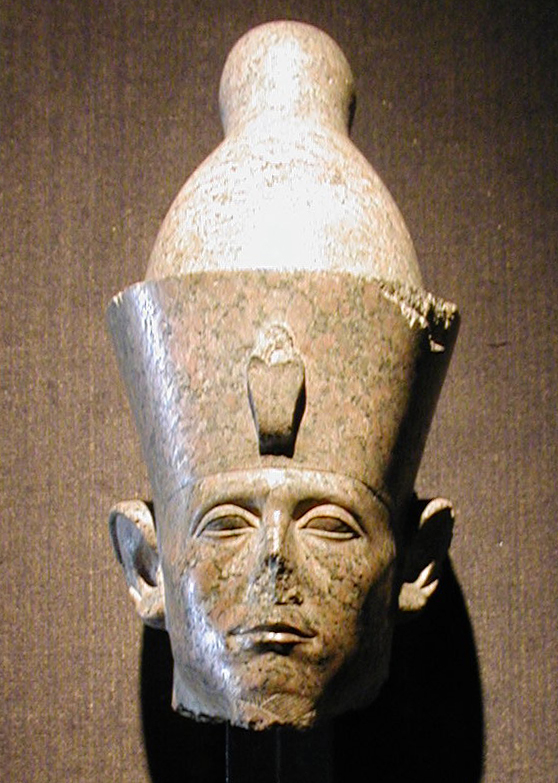
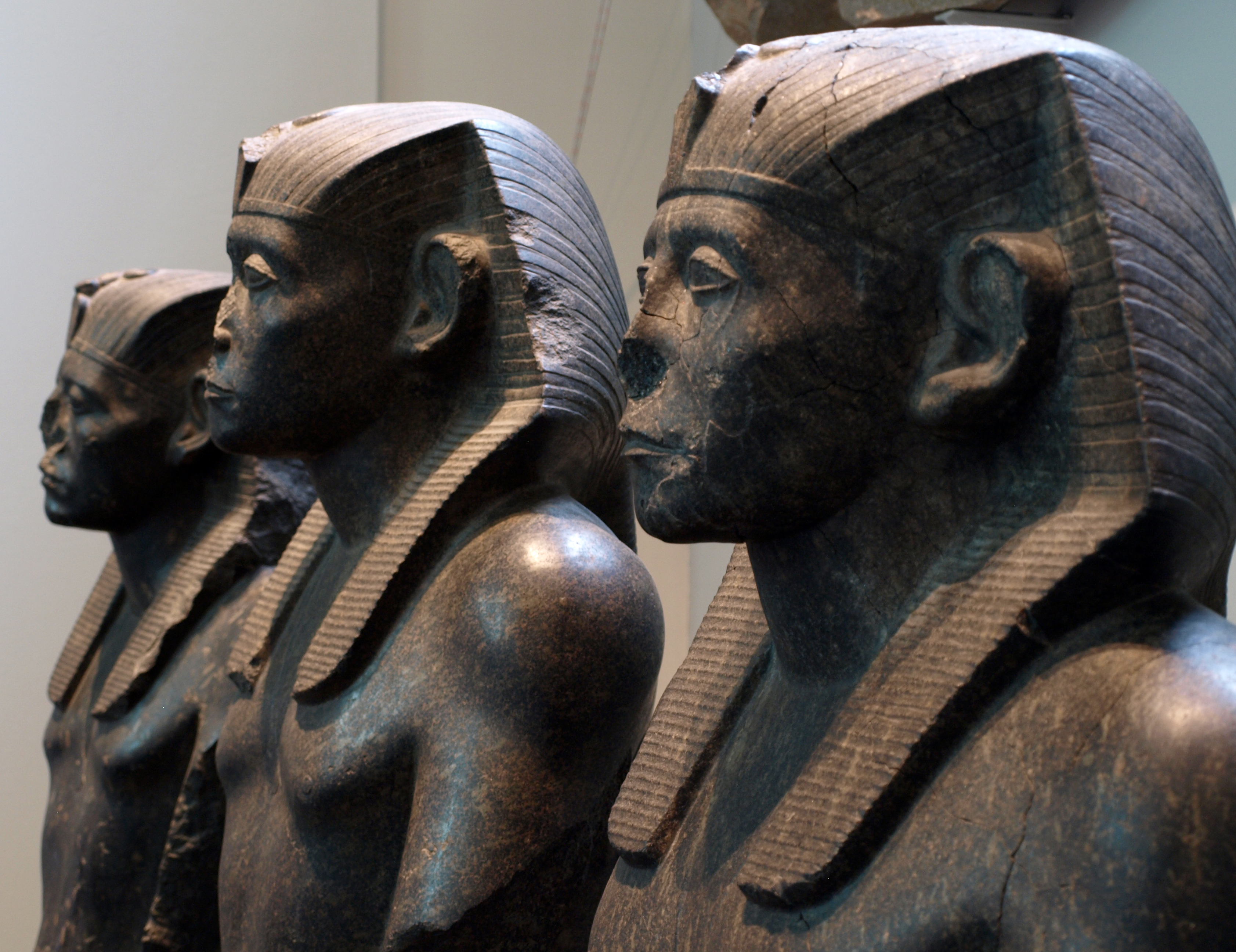
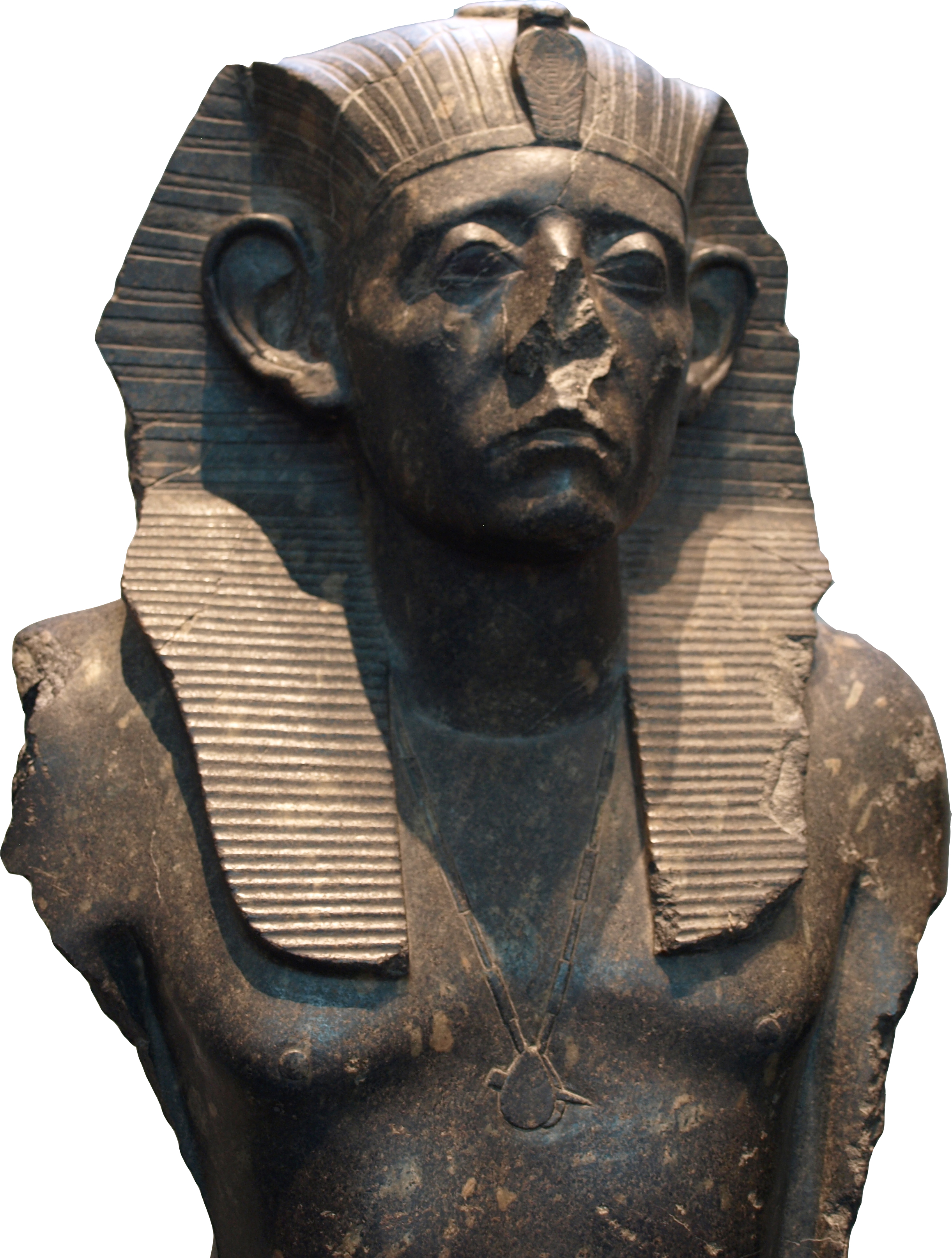
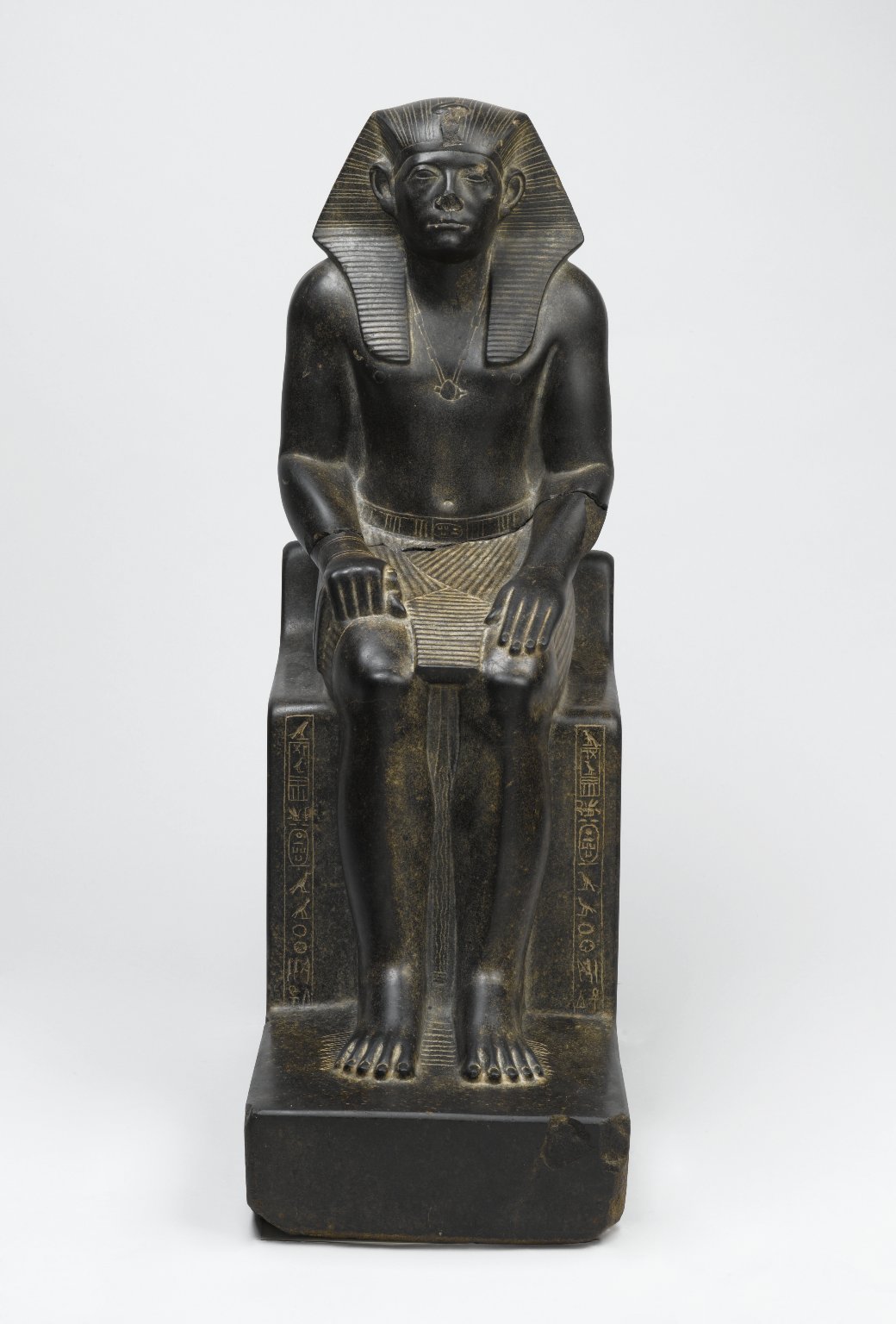
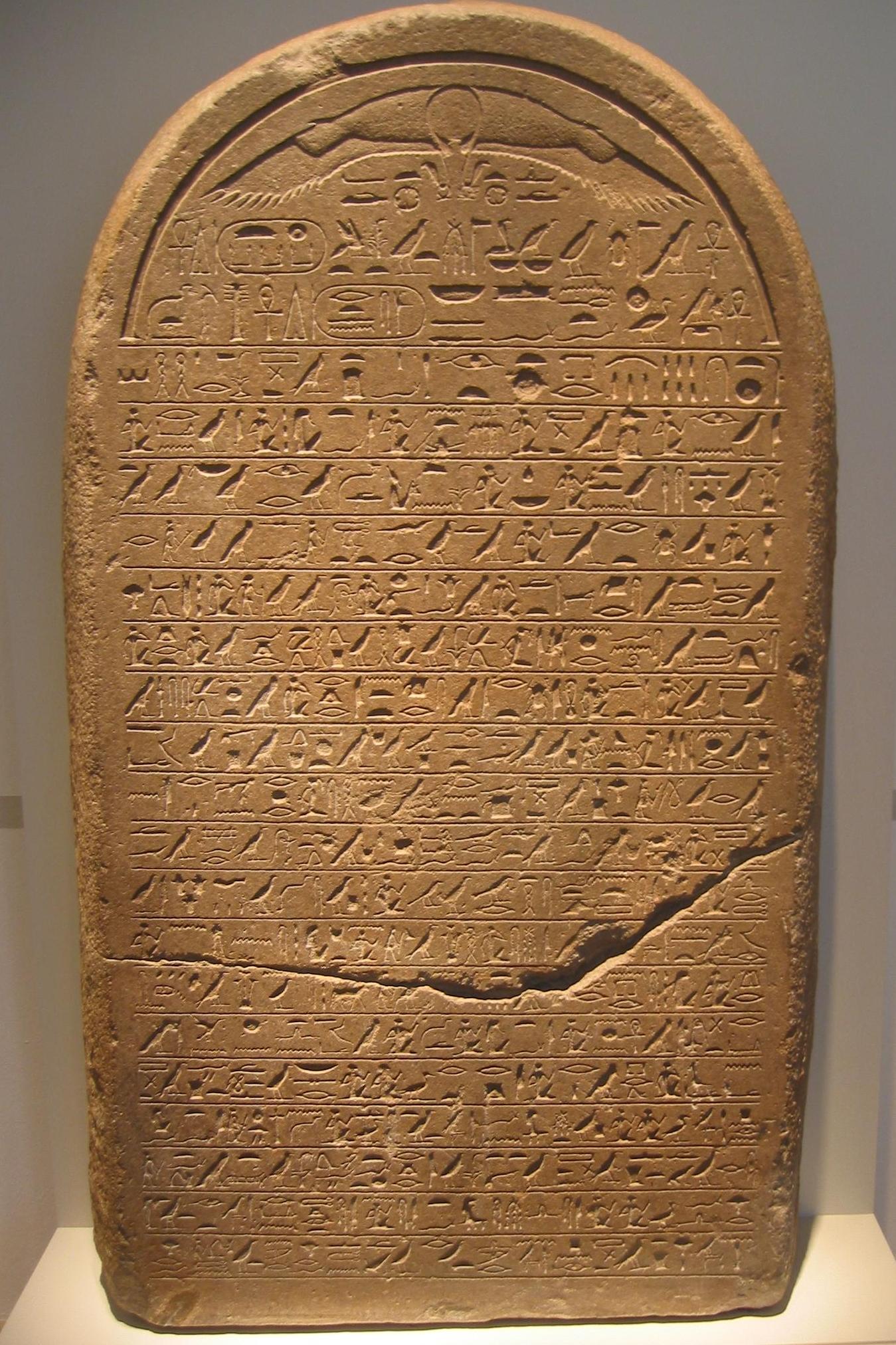
Verse nine
9 And Isaac and Ishmael, his sons, they buried him to the Cave of the Machpelah to the field of Ephron, son of Zohar, the Hittite, which is upon the facing of Mamre;
It shows Isaac and Ishmael together for the first time since Abraham sent Hagar "the stranger" away with Ishmael at the requests of Sarah and hwhy, which was roughly seventy years before. That's a long time for a sibling reunion between the two. They were together burying their father. It must have been an interesting scene.
Also, Isaac and Ishmael may have reconciled, because they could identify with each other in what their father Abraham did to each of them in different tragic ways. Isaac was almost killed by his father, and Ishmael was sent away with nowhere to go. They were like the types of the two goats at Yom Kippur: the Azazel, or "scape goat"----> Ishmael, and the goat dedicated, or offered up, to hwhy----> Isaac.
Regarding Isaac, did he still hold a grudge and resentment against his father for what he did to him at Mount Moriah? The scriptures do not say, but it did not say that Isaac mourned for him as it mentioned when Abraham mourned for Sarah.
Verse eleven
11 And was, after the death of Abraham, and Elohim blessed ta-Isaac, his son; and Isaac dwelled with Beer Lahai Roi.
This means that the anointing, or the mantle, or the baton, was passed on to Isaac. This is similar to when Moses died at the end of the book of Deuteronomy, and the anointing passed on to Joshua, which is noted in the Torah portion of V'zoth HaB'rakhah, in the book of Deuteronomy
Deuteronomy 34:9 And Joshua, son of Nun, was full of the Spirit of Wisdom; for Moses had supported (laid) ta-his hands upon him: and the Sons of Israel, they listened to him, and they did as the which hwhy commanded ta-Moses.
Now it's Isaac's turn to be at "the Well of the Living One Seeing Me" to have his future revealed through his future children like Hagar did with Ishmael.
Verses twelve through sixteen
12 And these are the birthings of Ishmael, son of Abraham, which birthed Hagar, the Egyptianitess, the female servant of Sarah, to Abraham: 13 And these are the names of the sons of Ishmael in their names, by their birthings: the firstborn of Ishmael was Nebajoth; and Kedar, and Adbeel, and Mibsam, 14 and Mishma, and Dumah, and Massa, 15 Hadad, and Tema, Jetur, Naphish, and the Kedemah: 16 These were they, the sons of Ishmael, and these were their names, in their courted areas (courted settlements, courted villages), and in their walled areas (hamlets); two ten (twoteen, twelve) rulers by their mother areas [(by their communities)].
Looking at the names and definitions of Ishmael and his descendants (NOTE: "S" refers to Strong's Concordance number):
Abraham (In Hebrew "Ah-vrah-hahm" (Mhrba) (S85)): The Exalted Father revealed [You can see the explanation in the Torah portion of Lekh L'kha, in chapter seventeen]
Ishmael (In Hebrew "Yeesh-mah-eyl" (laemsy) (S3458)): El Hears
Hagar (In Hebrew "Hah-gahr" (rgh) (S1904)): The stranger
Egytianitess (In Hebrew "Meets-reeth" (tyrum) (S4713)): Fortified, defense, siege, distress
Sarah (In Hebrew "Sah-rah" (hrs) (S8283)): Queen
Nabaioth (In Hebrew "N'vai-yoth" (tybn) (S5032)): Fruitfulnesses, flourishings, germinatings
Kedar (In Hebrew "Key-dahr" (rdq) (S6938)): Dusky, ashy, dark, mourn
Adbeel (In Hebrew "Ad-b'eyl" (labda) (S110)): Disciplined of El (or Grieved of El, or Languished of El)
Mibsam (In Hebrew "Meeb-sahm" (Msbm) (S4017)): Fragrant, spice, sweet, smell
Mishma (In Hebrew "Meesh-mah" (emsm) (S4927)): Report, hearing
Dumah (In Hebrew "Doo-mah" (hmwd) (S1746)): Dumb, silence, death
Massa (In Hebrew "Mahs-sah" (asm) (S4854)): Burden, tribute, prophecy
Hadad (In Hebrew "Khah-dahd" (ddx) (S2301)): Fierce, sharp, severe
Tema (In Hebrew "Tey-mah" (amt) (S8485)): Unkown (Most likely based on S8486 "teymahn" (Nmt): Right, or south [Hebrew-Greek Key Study Bible])
Jetur (In Hebrew "Y'toor" (rwjy) (S3195)): Encircled, to range, row [hill, rock]
Naphish (In Hebrew "Nah-pheesh" (sypn) (S5305)): Refreshed, breathed [souled]
Kedemah (In Hebrew "Keyd-mah" (hmdq) (S6929)): Precedence, project, precede, hasten, meet, dissapoint, prevent, anticipate
Putting the definition of their names together, it makes a story:
"The Exalted Father Revealed is the El that hears the stranger who is fortified and distressed and who is a queen (of the world) with fruitfulness and flourishings in her darkness. But she will be greived of El and disciplined of El through the hearing of her silence from the burden and the fierceness of Him who is of the Right (hand), and He will encircle her with His soul in haste"
This tell the prophetic account of what is going to happen to the queen of the world in the end times, who is known as the Harlot of Babylon, as noted in the book of Revelation, pertaining to those who don't accept Yeshua as their Messiah and those who are not of the Covenant of hwhy that are of the Jewish people still hold.
!!!hwhy Kl dbk
This is an example of this account in noted by the apostle John in the book of Revelation
Revelation 17:3 So he carried me away in the spirit into the wilderness: and I saw a woman sit upon a scarlet coloured beast, full of names of blasphemy, having seven heads and ten horns. 4 And the woman was arrayed in purple and scarlet colour, and decked with gold and precious stones and pearls, having a golden cup in her hand full of abominations and filthiness of her fornication: 5 And upon her forehead was a name written, MYSTERY, BABYLON THE GREAT, THE MOTHER OF HARLOTS AND ABOMINATIONS OF THE EARTH. 6 And I saw the woman drunken with the blood of the saints, and with the blood of the martyrs of Yeshua: and when I saw her, I wondered with great admiration.
In pertaining to both of these prophetic stories, as the Hebraic Roots/Messianic teachers proclaim, "The end is declared from the beginning".
!!!hwhy Kl dbk
Ishmael's twelve sons were noted. These twelve sons of Ishmael are the anti, or enemies, of Jacob's twelve sons, which is based in the Torah portion of B'reyshith, in the book of Genesis
Genesis 3:15 and I will set enmity between you and between the woman, and between your seed and between her seed; he shall bruise you to the head, and you shall bruise him to the heel.
That means Ishmael's twelve sons will be at enmity against Jacob's twelve sons. As we see today between the Jews in Israel and between the Palestinians and the Muslims, who are mostly descendants of Ishmael, are still at enmity towards each other today, and the enmity has not changed in over 3,500 years.
Verse seventeen
17 And these were the years of the life of Ishmael, a hundred years, and thirty years and seven years: and expired and died [(and was the death)]; and was gathered to his people.
Ishmael was 137 years old when he died. That makes Isaac 123 years old at his brother's death, and Jacob and Esau were sixty three years old at the time of their uncle's death. This also reveals that Jacob was still living with his parents before the blessing from Isaac, because Jacob was ninety-one years old when Joseph was born, which would have put Jacob at about seventy six years old when he went to Laban's home. It would have been another thirteen years before Jacob was blessed by his father to Padan Aram.
137 - 89 = 48 This is a chart showing the age of Ishmael's relatives by the time of Ishmael's death when he was 137 years old.
| YEAR OF MAN WHEN ISHMAEL WAS 137 YEARS OLD | NAME OF ISHMAEL'S RELATIVES | AGE OF ISHMAEL'S RELATIVES WHEN ABRAHAM WAS 175 YEARS OLD | AGE OF DEATH OF ISHMAEL'S RELATIVES |
| 2171 YEARS OF MANKIND | Shem | (Shem died when Ismael 122 years old and Isaac was 108 years old) | 600 years old |
| 2171 YEARS OF MANKIND | Salah | (Shem died when Ismael 92 years old and Isaac was 78 years old) | 433 years old |
| 2171 YEARS OF MANKIND | Eber | 448 years old | 464 years old |
| 2171 YEARS OF MANKIND | Isaac | 124 years old | 124 years old |
| 2171 YEARS OF MANKIND | Esau | 64 years old | (unknown) |
| 2171 YEARS OF MANKIND | Jacob | 64 years old | 147 years old |
If the calculation is correct, this would take the time line to about 1829 BC.
By the time that Ishmael died at 137 old, according to Wikipedia, based on the time line, the king who ruled in Egypt was Nimaatre Amenemhat III who ruled from 1860-1815 BC of the Twelfth Dynasty, in the Middle Kingdom. This is what Wikipedia says regarding Nimaatre Amenemhat III:
"Amenemhat III, also spelled Amenemhet III, was a pharaoh of the Twelfth Dynasty of Egypt. He ruled from c.1860 BC to c.1814 BC, the highest known date being found in a papyrus dated to Regnal Year 46, I Akhet 22 of his rule. His reign is regarded as the golden age of the Middle Kingdom. He may have had a long coregency (of 20 years) with his father, Senusret III.
These are statues of Nimaatre Amenemhat III
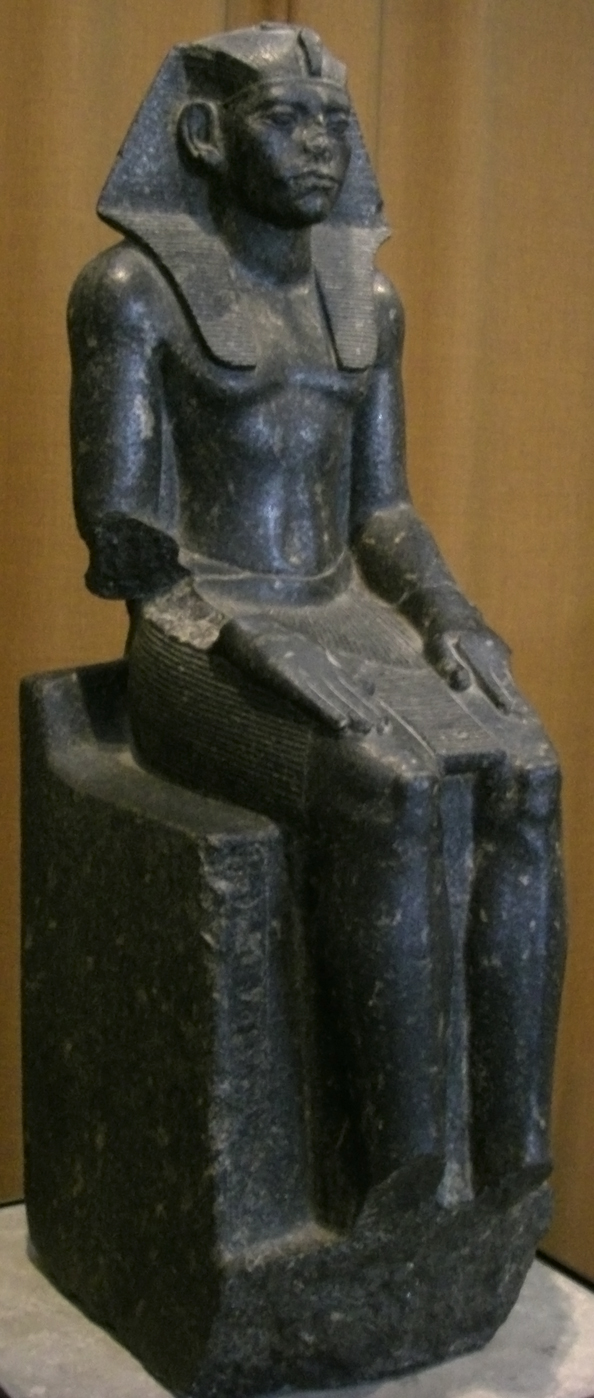
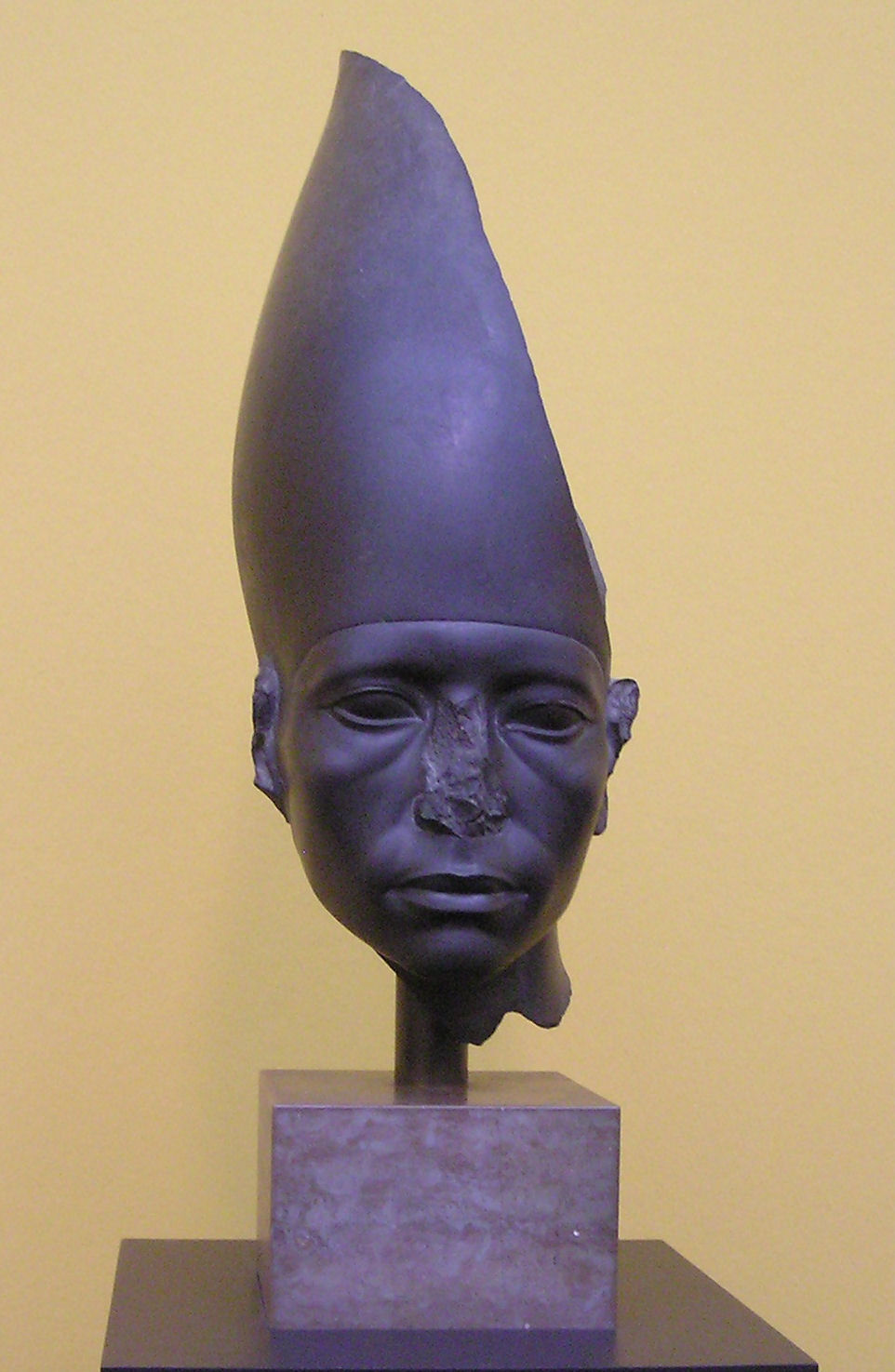
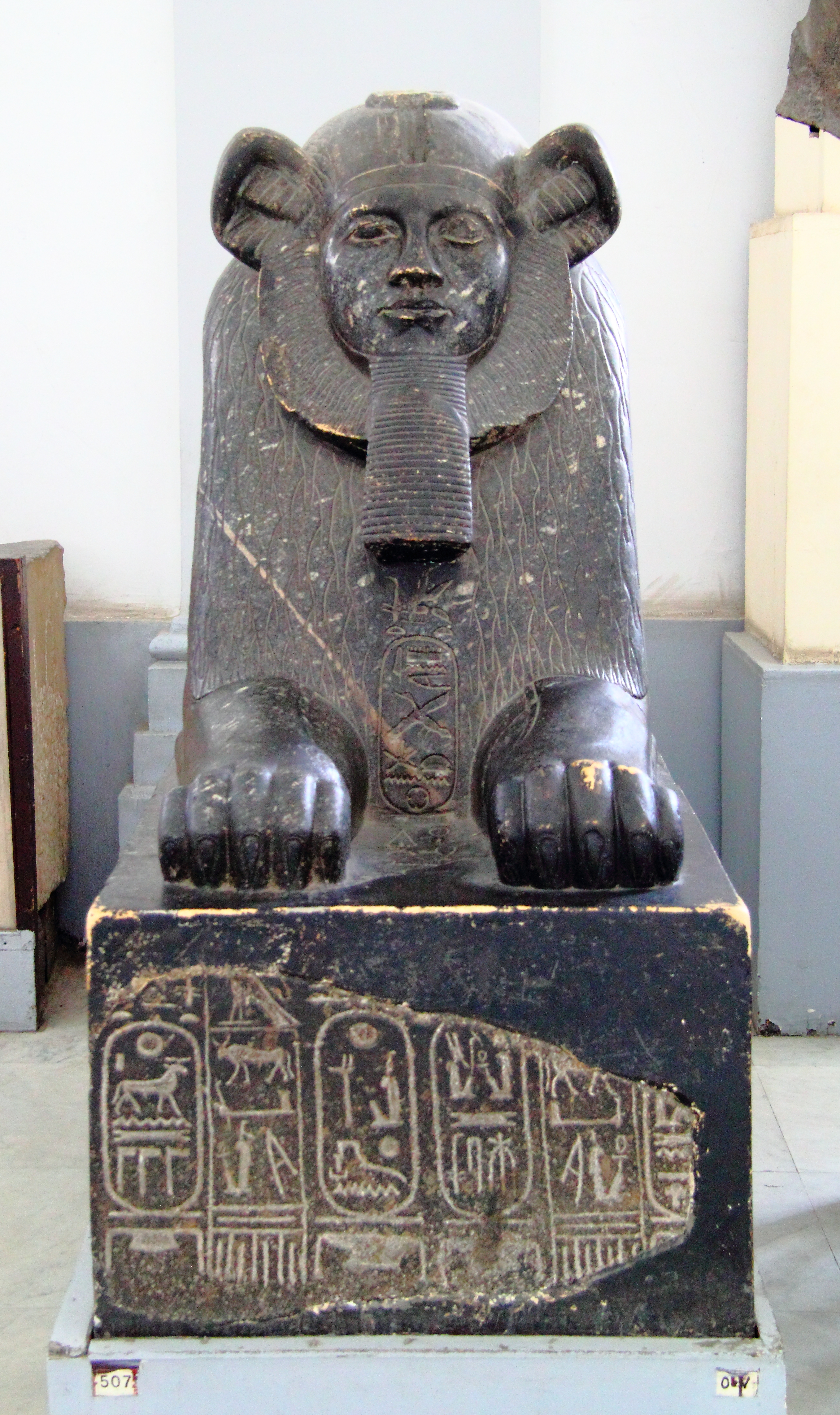
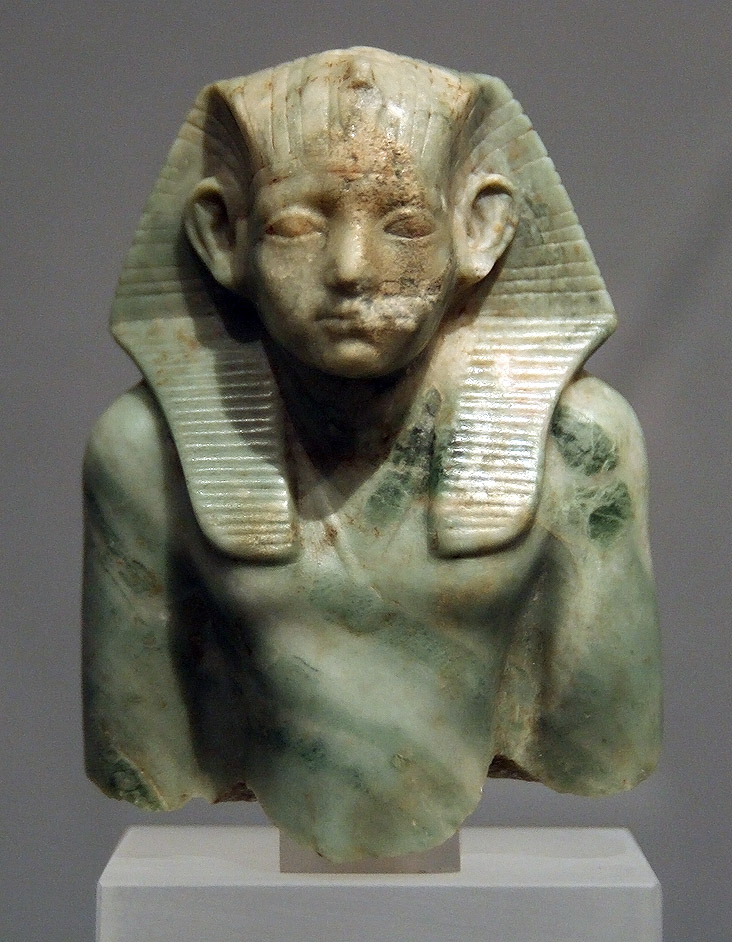
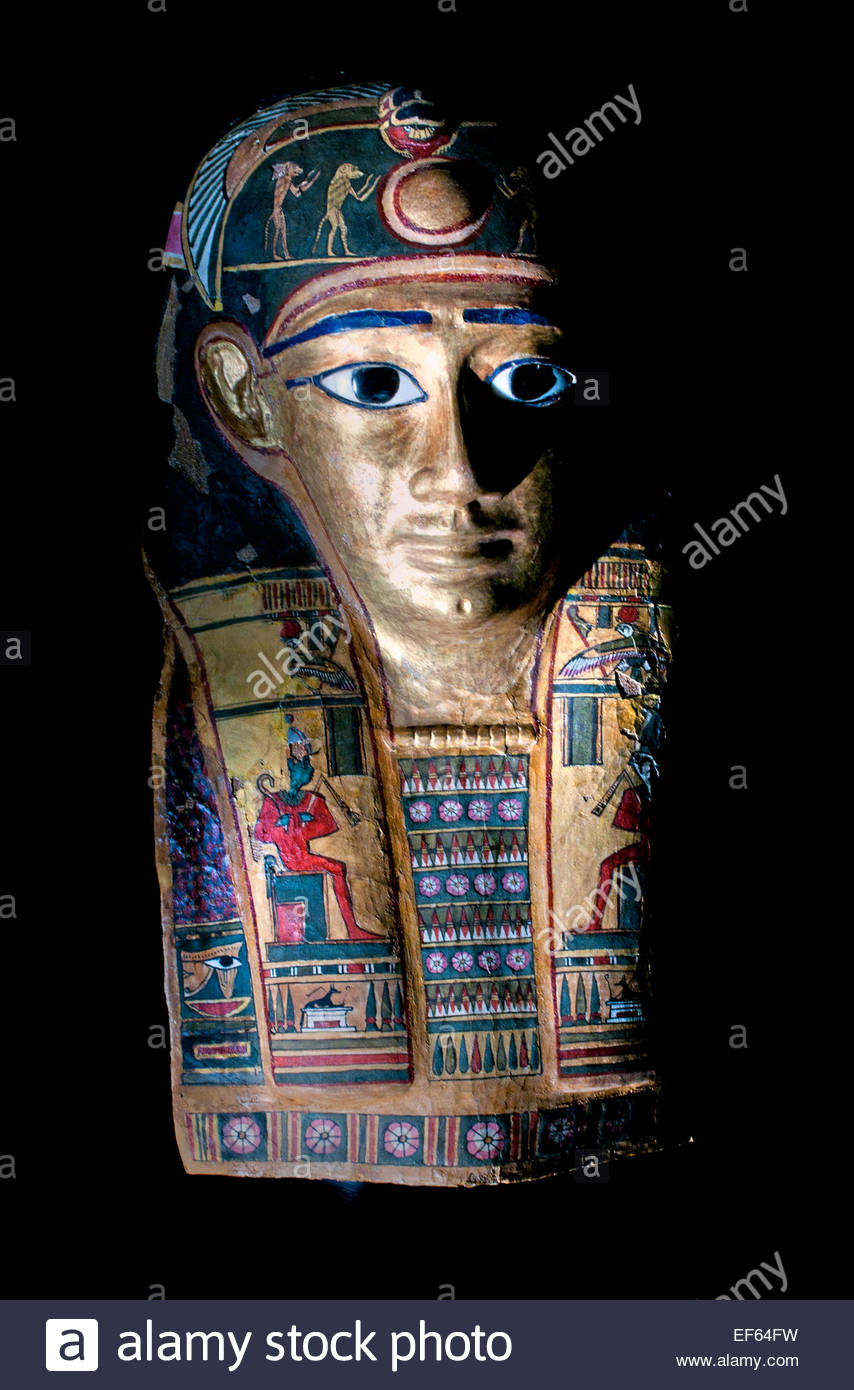
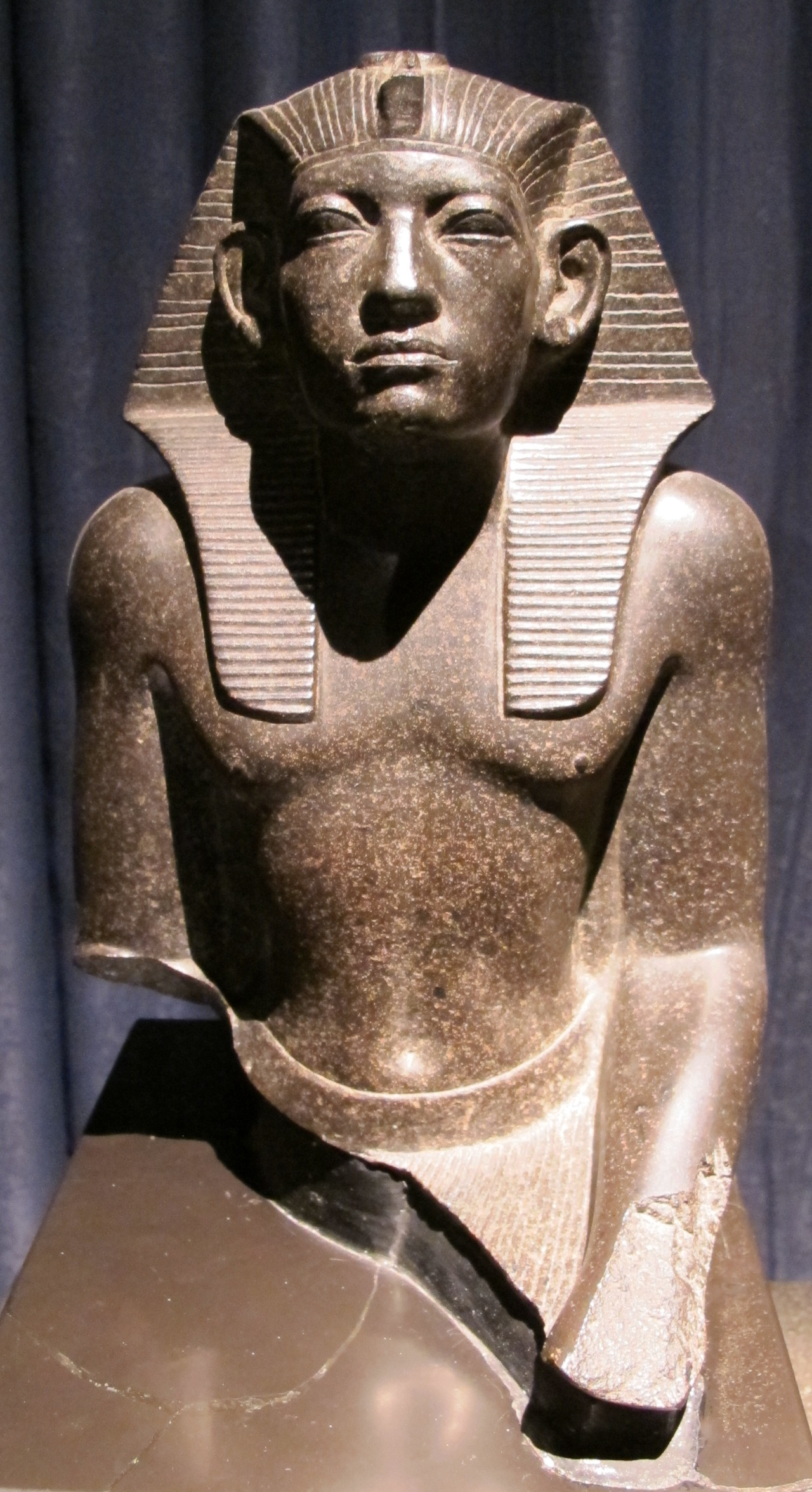
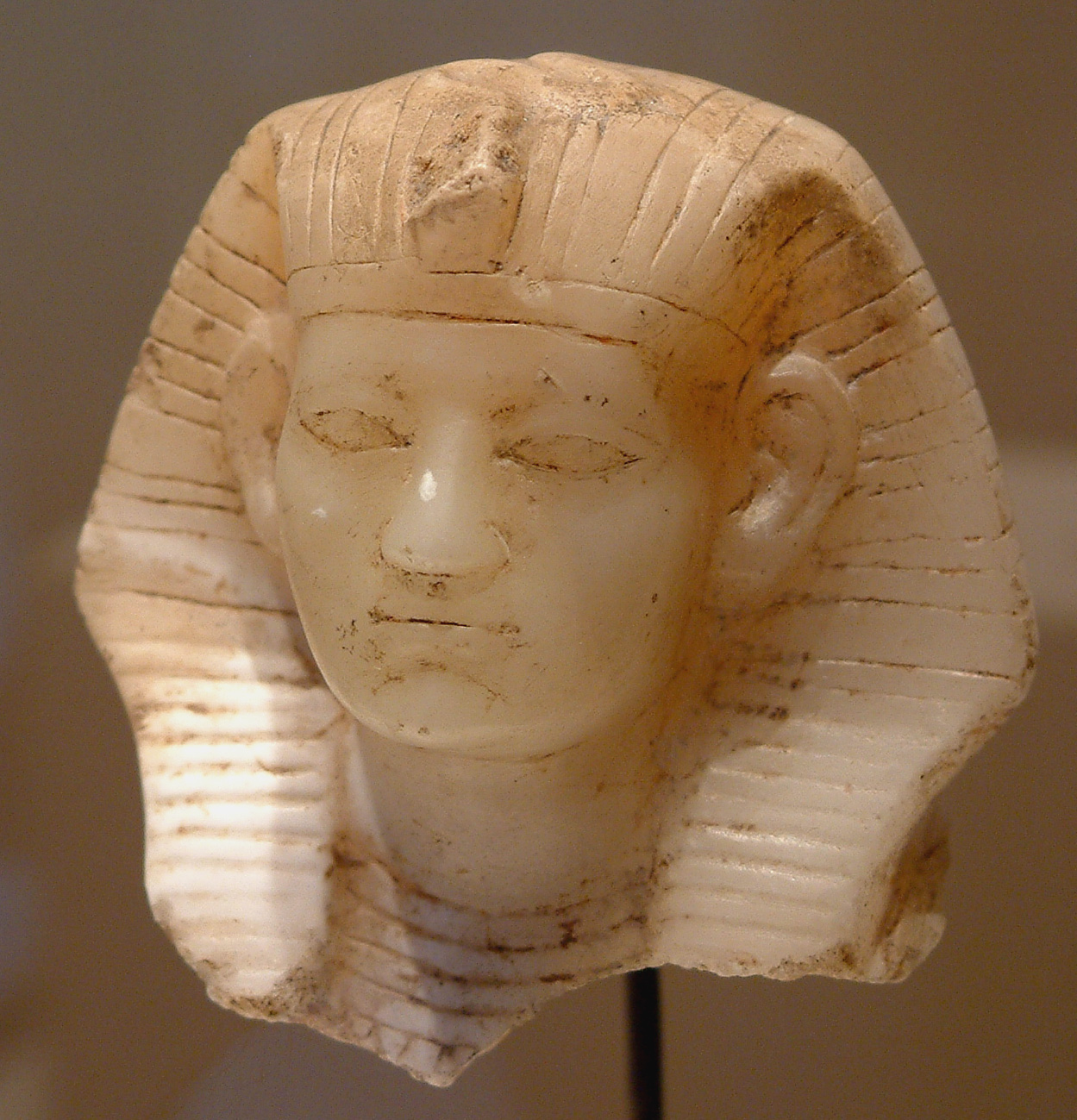
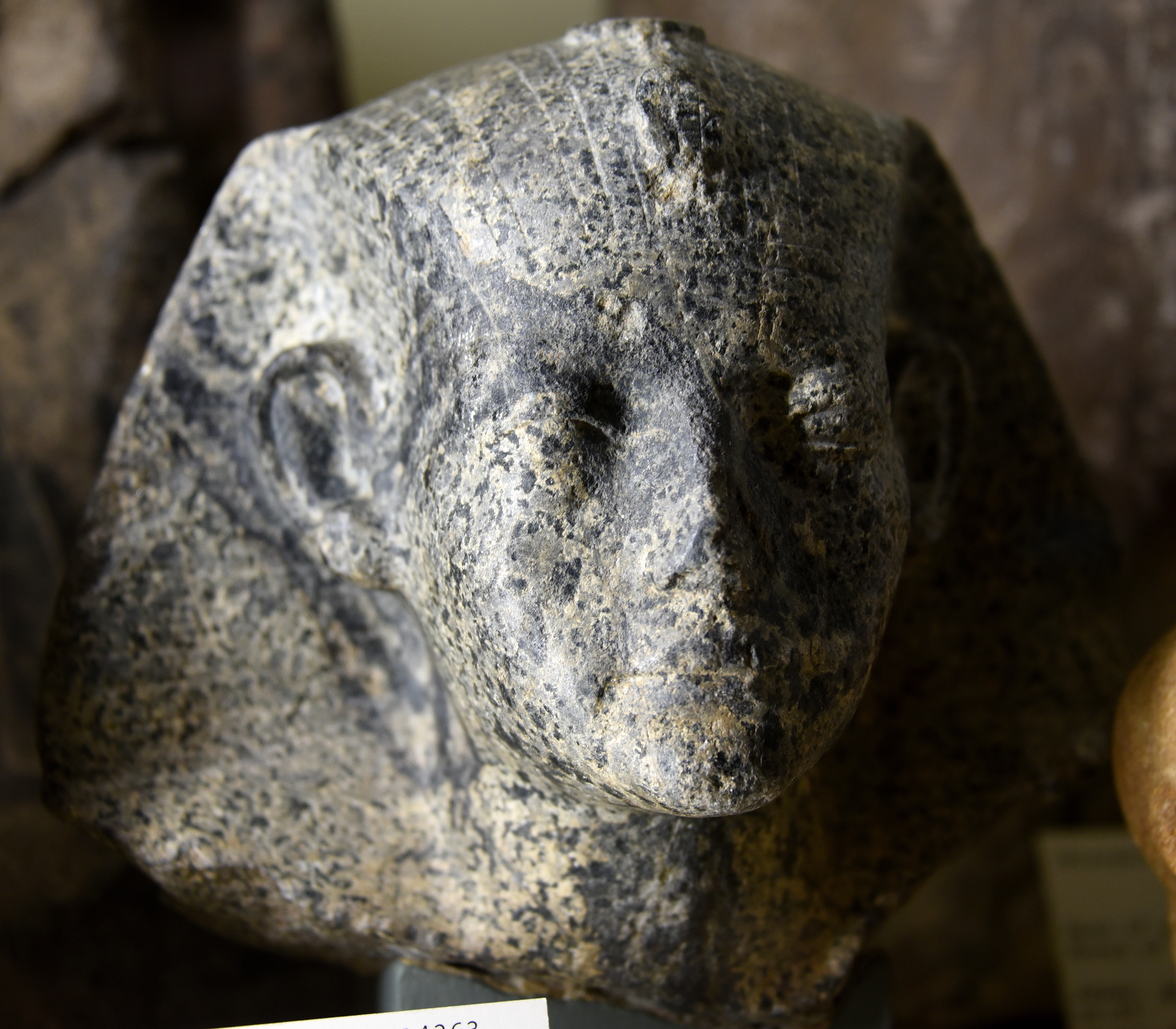
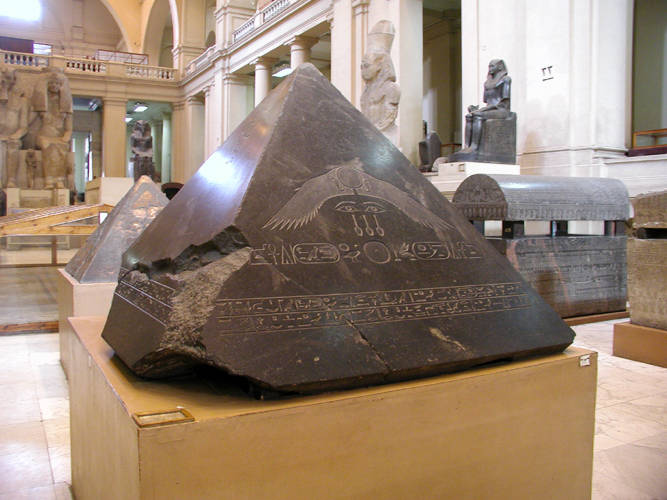
Verse eighteen
18 And they dwelled from Havilah unto Shur, which is upon the facing of Egypt as you go towards Assyria: upon the facing of all his brothers were accepted (fell upon, happened).
This is a general map where Ishmael's descendants settled
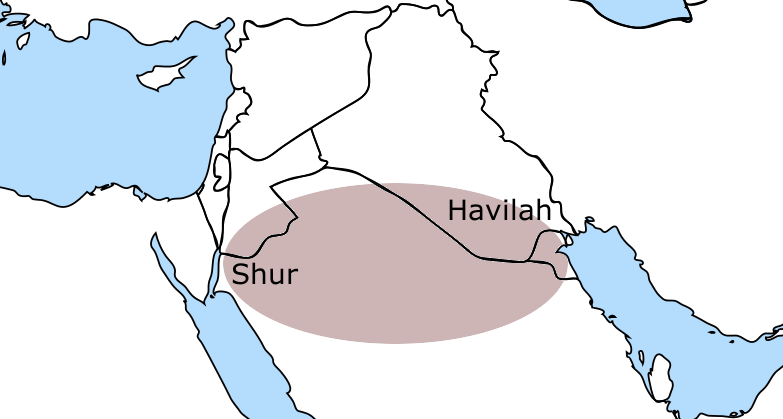
This is located today in the southern nations of Jordan, Iraq, most of Kuwait, and the northern border of Saudi Arabia
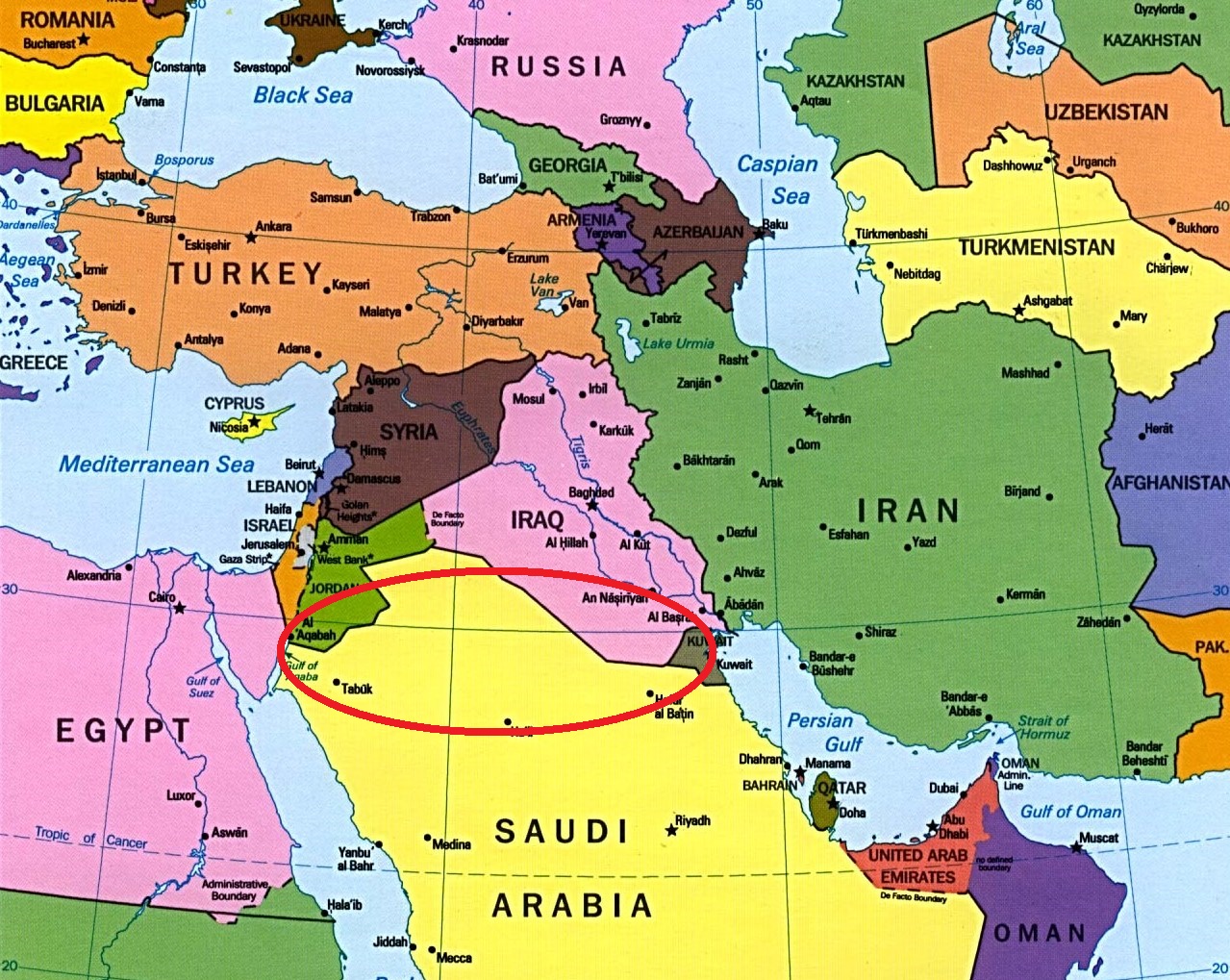
Also today, they are all facing the brothers of the north, especially Israel.
That ends this week's Torah portion commentary.
Any questions or comments can be written to
the.aleph-tav.project@msn.com
SHABBATH SHALOM

_______________________________________________________________________________________________________________________________________________
_______________________________________________________________________________________________________________________________________________
Copyright 2014 The Aleph-Tav Project - NVU's Website Design Software by The Premier Group